|
It all depends on how you see it! Today's quick post is a small reMINDer that your view is one of millions, if not billions, of potential perspectives. And... more often than not... our perspectives are skewed by what HAS HAPPENED to us. It's true: our fear of possibly facing something we have previously faced is often greater than the fear of facing the unknown. Today, reMIND yourself. That is: remove what is currently in your mind, and replace it with something new. Only YOU know what needs to be replaced. Do it. Your perspective matters. Aloha,
Consider how the wild flowers grow... They do not labor or spin. Yet I tell you... ...not even Solomon in all his splendor was dressed like one of these. Luke 12:27 Invest time today to simply "be." Can you stop everything for merely 15 minutes and do absolutely nothing? Aloha,
Given the extreme nature of these challenging times, today... ...let's revisit a previous Two-Little-Word concept; it’s something I discussed on Day#3- Faith. Today, I’d like to suggest that each of us seek to have more faith. First, you must understand that everything… yes… everything is bigger than you. Is this humbling? Yes! Is this wonderful? Absolutely! How can this be humbling and wonderful? Quite simply… we are in a relationship with everything… Worded differently, yet the same: E V E R Y T H I N G is connected. Thus, we are in a relationship with everything. By definition, a RELATIONship is how individuals relate to one another. And relationships are always so much more important than the respective individuals in the relationship. Thus, in business, romantic, and social relationships, the individuals must always appreciate and respect the relationship more than their separate and distinct "selves." When people think or make themselves more important than the relationship, the relationship loses the integrated aspects of beneficial exchange. And, as such, therein begins all kinds of potentially destructive behavior. As we progress through today’s Two Little Words (and the next one), we must now and forever appreciate the vast connectedness of our self, the environment, and our respective missions. Worded differently, yet the same: Life is bigger than any one of us. Yet, as insignificant as that last statement may appear to make you and me, in reality, we are an integral part of… uhm… everything! Everything is connected in some way, shape, form, or fashion. Accordingly, the good, the very good, the bad, and the very ugly are related and in a relationship with you. But (as many will say…) “This means we are not protected from the bad! What can we do to protect ourselves from the bad and the ugliness of the world?" Such concerns are made up of an intangible entity called “fear.” And the best way to deal with fear is with another intangible entity called “faith.” But what, exactly, is this thing called “faith”? Faith is more than confidence, reliance, and belief. Yet, as you and I both know, faith is not quite assurance. Or is it? It has been said that faith is the assurance of things hoped for, a conviction of things not seen. Yet, for many of us, faith remains an instrument of contrivance that we purport to present in times of need, want, or desire. Not surprisingly, we call upon a renewed sense of faith in times of great distraction, despondence, and despair. Well, it seems to me that now is a good time for a renewed sense of faith. Please forgive me if I seem cynical; I am not cynical… I am idealistic. And I am merely asking you to better define what most people consider faith. Why? Because everything in life requires faith. This small statement of truth is profound on a level that most people rarely understand. Every single act you do on a daily basis… is an act of faith. We have faith the sun will rise next Tuesday. We have faith in the corner store being open – and having toilet paper - especially when we need that store to be open (remember those days back in 2020?). We have faith that our cousins, brothers, sisters, and all of our other relatives will grow old with us. We have faith that the government will be intact when the worst possible things occur. We have faith that our personal interpretation of the facts is an accurate reflection of reality. And in one way or another, we have faith that the worst-case scenario will either... 1) ...not occur; or 2) ...not occur to us; or 3) ...if it does, indeed, occur to us, we can somehow, someway get past it. Indeed, everything in life requires faith. Whether you know it or not, we all have faith in a belief that... no matter what HAS happened; no matter what WILL happen, our situation is not at an end, but rather at a whole new beginning. And with a little (more) faith and a (lot more) focus on the positive aspects of life, we can achieve the best, most awesome, wonderful thing in the world: we can achieve presence in the present. But let’s not get ahead of our self. The question remains… What is faith? If I may answer this question… In my humble opinion, faith is an absolute commitment to your belief. And a commitment is more than a passing promise. A commitment is...
And though commitment is important, we MUST understand that re-commitment is almost as important as the initial commitment. In our daily walk with self, it is only the “I” that knows what “they” can never know. It is only through S.E.L.F.-recognition of our personally known weaknesses that we can become stronger. And our only real weakness is often found in our refusal to re-commit to our previously established beliefs. Interestingly, in our minute-by-minute travels through the valley of the shadow of death, we are already committed to taking the next step. In fact, we HAVE to. (After all, life is not so bad when you consider the alternative). Take a moment and smile: You have (already) been taking that familiar, yet unknown next step since Day One. Good for you! But now… Let’s take it a step further (pardon the pun). Let’s, um, take a step back, and re-commit our self to that glorious blaze that sparked a flame in our hearts many, many moons ago. Let’s rekindle the commitment to our belief, and to our knowledge. Let’s have faith… you and me. First you, then me. Don’t just have faith; have more faith. Go all in. Give your faith all of you, and your relationship with faith will soon change more of you. Don’t worry about me. I said a few prayers before, during, and after writing this; now... I have MORE FAITH. How ‘bout you? Are you ready to... Accept reality for what it is? Adapt to a changing landscape? Achieve the best possible outcome? Aloha,
Are you doing things with a specific purpose? When was the last time someone stepped on your foot and kept walking as if nothing happened? Most of the time, such an episode is likely to pass without further incident. However, if your day is already on the verge of becoming the next daytime reality series, that one little misstep is likely to be viewed as a foot stomp. In the final analysis, such an incident means absolutely nothing. In fact, I propose that, even if the person stepped on your foot "on purpose," the best that you can do is say, "No worries." And then let bygones be bygones. True story: I was at an intersection in Saginaw, Michigan, when I decided to pull into a gas station and call my cellphone service provider to inquire about the horrific reception I was receiving in that area of the state. As I sat in my rental vehicle, trying to decipher the garbled questions from the customer-service representative, I watched a young man get out of his car, smash his lit cigarette into the top of a trash can, and toss the still-lit half-smoked cigarette into the trash can. I know what you’re thinking… “With the cost of cigarettes these days, who smokes just half of a cigarette?” But seriously, I watched the trash can intently, focused on the dark recesses of the opening. And, then... there it was: the first small signs of a smoldering fire. At this point, I knew I had to either tell someone or put out the fire myself. Actually… there was a third option – I could have just left the gas station. But I didn’t leave. And I didn’t try to put out the fire. However, I did, in fact, get out of my vehicle and tell the store clerk… and I also mentioned the large rack of propane tanks that sat in a cage flush up against the trash can. The clerk immediately filled a bucket with water and doused the little flame that could have been so much more. Ahhh… imagine the “what if’s.” What if I had not stopped at that seemingly random gas station? What if I had indeed stopped, but spent the entire time totally engrossed in my conversation with a customer-service representative that was located in another far-off state? What if the trash can did fully ignite and cause the propane tanks to explode like little bombs, one after the other? What if… Actually, we can’t go on living thinking about “What if?” How do I know this? I know it the same way you and everybody else knows it: We have all seen someone transition from life at some point in our lives. And we also know that we, too, will someday delve into another realm of reality. Yet, in an interesting Catch-22-recipe of fate, faith, and denial, we speed toward our eventual death as if life goes on forever. It does. But that’s not my point. My point is this: When someone steps on your foot, it’s usually an accident. But if they did, indeed, do something to you on purpose (whatever it is), their actions should still have absolutely nothing to do with YOUR purpose. Today I want you to believe, think, and KNOW that your life… the mind, body, and soul that is you… is definitely not an accident. So, let’s not live our lives as if we’re waiting for an accident to happen. After all, accidents will happen. Mistakes will be made. Tears will be shed. And you know what? Life will go on! And you should, too. And you should go on in a way that ensures your life is shimmering with the fulfillment of your purpose… not in a manner that gives a higher response to people doing “bad things” to you on purpose. Regardless of what their purpose is... focus on your purpose. Regardless of their imperfections, focus on your path to an Ideal Life. I am not perfect – and neither are we (you, he, she, and me). To me, imperfection is wonderfully liberating! Knowing that we are not perfect gives me knowledge and hope that I am not a hopeless heap of hopelessness. Yet, all too often, we second-guess our respective God-given talents and abilities simply because we are afraid to make mistakes. Have you ever wondered why it’s called “second guessing?” It’s called “second-guessing” because we actually initially KNOW what we should do. But instead of going with what we know, we second-guess ourselves (our S.E.L.F.), which is rather ironic in the fact that the ONE thing we should know, better than anything, is ourselves. Perhaps we should start first-knowing… and then “second-knowing” instead of second-guessing. Remember: Your dreams are accomplished by first setting up your goals. Your goals drive your plans. And your plans tell you what you should do every single day of your life. Or, perhaps some of you see it this way: Plans are steps to achieving our goals, which help us achieve our dreams. Both of those statements say the same thing… and, if we really want to achieve our goals, we simply have to write them down. As we write them down, our dreams are transformed out of our head and into the physical world...and into a written plan. So tell me… with all this extra time we have on our hands during this pandemic, have you authored your dreams, your goals, and your plans? If you have, indeed, written them down… you are in a much better position to avoid accidents, predict the future, and live your life ON PURPOSE... ...your purpose! To help author your dreams, goals, and plans... Accept what is.
Adapt to a changing landscape. Achieve the best possible outcome. Aloha, YOU tell ME: How big is the problem?
Have you ever noticed that little wonder of a planet that we simply call The Moon? As often as I can, I try to enjoy the moon in all of its splendid, majestic beauty. There it is... ...suspended just outside the almost unlimited reach of earthlings like you and me. Here we are... ...undervaluing the beauty of such a lovely orb. I would guess that most of the world’s population thinks of the moon as a pretty circle of light when it’s full, and little more than a sliver or a section of a shiny plate during the other phases of the moon. Indeed, most of us forget that the moon is not a circle, nor is it shiny. The moon, so close - but yet so far - is actually a tiny little planet that lights the night with the same light of the day: The Sun. It’s so easy to neglect the moon and its simple beauty. As earthlings, our focus is near, here, and close to things we hold dear. But on many a moonlit light, I love to sit and gaze intently at the moon, just long enough for my eyes to begin to appreciate its spherical shape. I like to see the bright light fade into the soft shadows of the eventual celestial darkness as the rounded edges of our nearest heavenly body give way to the infinite confines of space. I like knowing that something so big is so close… yet not quite here. In life, our troubles often mirror this astronomic relationship that we enjoy with the moon. All too frequently, we spend too much time focusing on what we think the object is. And we often end up wasting our time trying to solve long-term problems with short-term fixes. Like my gentle, gazing stare while trying to consume the true beauty of the spherical moon, we could all gain significant insight if we sought an accurate understanding and perspective on the depth of our personal issues while simultaneously seeking longer-term solutions for long-term troubles. What does this galactic mumbo-jumbo really mean? It means that we must acquire an ability to look at the big picture if we want to settle our issues in an effective manner. But therein lies the big question: How big is the picture? Well, I’ll tell you this: If your problems are really big… the picture has to be really, really big (that’s one extra “really”). By definition, the solution to our troubles has to be effectively bigger and better than our troubles. Yet, like the earthbound moon-gazer who never sees more than a shiny circle because of his focus here on earth, we often spend too much time focusing on our troubles, and we never see the oh-so-close solution that has been rotating around us for quite some time. How big is the picture? You tell me: How big is the problem? In corporate America, many companies employ something called a “S.W.O.T. analysis” to address current and projected problems. The S.W.O.T. acronym stands for Strengths, Weaknesses, Opportunities, and Threats. And the S.W.O.T. analysis is based upon objective environmental scans regarding each one of these discrete characteristics. More than a simple list of characteristics, the analysis often involves an internal analysis of Strengths and Weaknesses… and an external analysis of Opportunities and Threats. For example, an organization might consider its sales force to be an industry leader, and, as such a corporate Strength. On the other hand, if the same organization’s Human Resources department has a big problem with turnover, the internal Weakness can actually create an external Threat if competing companies try to lure salespeople and HR personnel from the organization. Ideally, companies should align their Strengths to offset their Weaknesses, and seek Opportunities within their environmental Threats. The Apple (computer company) did just that many years ago when the company launched the iPhone, iPod, and iPad. Not only did Apple take on the threatening world of smart phones, music devices, and tablet computers… they redefined those products and simultaneously delved into direct retail, opening hundreds of Apple stores… cutting out the middleman while watching the company’s stock skyrocket from a measly $40 a share to well over $1,000 a share today (when adjusted for stock splits). The previous Chief Executive Officer (CEO), Steve Jobs, placed a relentless focus on "elegant simplicity." And what did customers do? They subsequently focused on Apple, creating an intensely loyal fan base that is arguably unprecedented within the computer industry. So where does this conversation about the moon and computers leave us? As the Chief Executive Officer of the organization of cells, muscle, bones, and thought that is the person known as you… you really need an intense focus on a few things to become and remain successful. And like the constantly changing corporations of the world, you, too, need a sorta-kinda S.W.O.T. analysis. I call it simply a S.E.L.F. analysis. Specifically, when we are faced with some really freakin’ big problems, we simply HAVE to review the four parts of S.E.L.F.: ** Spiritual Emotional Logical Finite. The Spiritual part of self is definitely real. I won’t spend time in this post trying to convince you that we are not just flesh and bones; you already know that. But did you know that by simply meditating on a regular basis, you can strengthen your Spirituality? Next is the Emotional part of S.E.L.F. This area requires the most work, primarily because many people believe their Emotions matter most. And as I have said before, if we believe it, it’s true (to whomever believes it). What are you doing to drive your Emotions to a calm, enduringly positive state? Oh… and in case you didn’t know: by simply meditating on a regular basis, you can navigate your Emotions to a calm, enduringly positive state. Logically speaking, life is not so bad when you consider the alternative. Ironically, one of our biggest challenges in life is a human tendency to seek a Logical resolution to every problem. Indeed, our thoughts are often the very things that seem to keep us mired in challenging situations. Or is it our Emotions? Actually, by simply meditating on a regular basis, we can better integrate our sense of Spirituality, our need for Emotional balance, and our continuous penchant for a valid understanding of why things happen the way they do, don’t, did, and didn’t. Finally, there is the Finite. What is this Finiteness? It’s the vehicle in which your drivers of Spirit, Emotion, and Logic sit safely in until the day when our Spirit is called to do something different. Indeed, this will not go on forever, at least not in the same Finite frame. Interestingly, three of the four parts of S.E.L.F. are intangible but very real. Perhaps more interestingly, all four parts of S.E.L.F. become magically integrated into a really, really, really, really, really big solution system by simply meditating. Hmmm... Can you think of a good first step toward resolving some seemingly big problems? Your mission for today: S.E.L.F. CONFIRM. Oh... and, as you improve your S.E.L.F., Accept what is. Adapt to a changing landscape. Achieve the best possible outcome. Aloha,
I spent some time video chatting with an adorable six-month-old baby a few days ago. We kept the conversation light and fun. I didn’t go into too many details about my day… and neither did she. She said a few things that I didn’t quite understand, but I didn’t think it would matter much if I asked for clarification. Instead, I just repeated what she said – or at least I tried to repeat what she said – but she was really speaking her own little language… and so was I. But aren’t we all? This short story about the video conversation I had with the baby could have easily been a story about a conversation I had with an old friend, ex-wife, or foreign exchange student. If you think I’m off my rocker, read this: I spent some time video chatting with a FOREIGN-EXCHANGE STUDENT a few days ago. We kept the conversation light and fun. I didn’t go into too many details about my day… and neither did she. She said a few things that I didn’t quite understand, but I didn’t think it would matter much if I asked for clarification. Instead, I just repeated what she said – or at least I tried to repeat what she said – but she was really speaking her own little language… and so was I. Interesting, eh? In reality, each and every one of us has our own special way of talking. However, mere "talking" is not "communication." For communication, there are four required components: - The sender; - The receiver; - The message; and - The medium. From the time we were born into this world, we began developing our very own communication idiosyncrasies. Of course, we learned most of our initial communication styles from people who were closest to us: our parents, siblings, and (sooner or later) our friends. But as much as we learned from them, we remain forever true to ourselves, developing our own communication style while sampling bits and pieces of the things we have seen, thought about, and heard. Indeed, our communication is definitely affected by what we see, as well as what we hear. Understanding this little factoid helped me devise an effective way to approach a sensitive topic with my wife many years ago. A few months after our wedding, I asked her to join me in listing our respective strengths and weaknesses: We each began with a sheet of plain printer paper, and created four columns: - Two columns of adjectives that I listed about her… and - Two columns of adjectives that she listed for me. We both filled out our respective sheets of paper by listing 10 characteristics in each column. Thus, she listed 10 strengths and 10 non-strengths for me. And I did the same for her. And then came the time to share our perceptions. Of course, I expected our respective descriptions of strengths to go rather smoothly, and it did. On the other hand, I was somewhat concerned about the subsequent conversation regarding our perceived weaknesses (I think I called them non-strengths). So, given my concern about sharing and receiving what we perceived to be each others' non-strengths... what did I do? I planned for an effective conversation. I rented a minivan and invited her to the beach, where we sat in the back of the minivan, with the hatch open, listening to the soothing sounds of the whispering waves as they kissed the sandy shore. We sat with our backs flush up against one another, hers against mine - back-to-back - and mine against hers… both of us facing opposite directions, not looking at each other, but with our arms interlocked, literally feeling each others' every spoken word. And then we discussed our respective non-strengths. And I have to tell ya’… ...it was an amazing conversation. Interestingly, our top five or six descriptors of each other matched up pretty well (of course, mine were a bit more, uhm, kind. But, hey, I’m a writer, write? I mean… right?) Anyway… What’s my point? Whether political pandering, practical meandering, or just plain old social elaborating, conversations are, by definition, an exchange of words. Specifically, the definition of a conversation is: con·ver·sa·tion [kon-ver-sey-shuhn] - noun 1. Informal interchange of thoughts, information, etc., by spoken words 2. Oral communication between persons. (dictionary.com) Thus, whenever you are choosing (yes… you are the only one who chooses YOUR words)… whenever you are choosing to say something, you must ALWAYS first consider your desired effect. Hence, the term: EFFECTive communication. Our communications are only effective if and when they achieve the desired effect. Career politicians know this; that’s why they become masters of the sound bite. Effective parents understand this concept; that’s why they use the art of varying tones and voice inflection to add an additional layer of communication when successfully convincing their children to do something. Indeed, there’s quite a bit to be said about tone and voice inflection. For example, read the following sentences aloud, with an emphasis on the capitalized words (or with an emphasis on voice inflection for the question): You LOOK tired! (some might say it says, “You look like crap!”) You look tired? (some might say it says, “What’s wrong?”) YOU… look tired. (some might say it says, “I am concerned; please rest here.”) Of the four main components of communication (sender, receiver, message, and medium), none of them reference tone. Interestingly, if you remove any one of these four components, communication abruptly stops. Even more interesting is this little fact: Even with all four components present (sender, receiver, message, medium)… without the right voice tone, communication will STILL stop. Yet even MORE interesting… If an when the sender and receiver speak different languages, as long as there is a commitment to effectively communicate... ... thy will be done. As we spend time with our families and friends over the next few weeks... And, as we make more time to reach out to relatives in a more meaningful way as the winter season eases into spring, remember to say what you need to say. Say what you mean to say... ...and mean what you say. Watch your tone. Don't just talk and hear; but focus on listening. You might discover a whole new and wonderful world. In a nutshell... COMMUNICATE EFFECTIVELY. Oh, and… Accept what is.
Adapt to a changing landscape. Achieve the best possible outcome. Aloha, Our world changes forever... every... single... day. For those of us who have lost a family member, a close friend, or perhaps another type of special item, relationship, or capability, the journey of loss in the ensuing months can feel like we are flowing in and out of various states of consciousness. In reality, we are actually going through a transition. And even if we are not personally touched by the ultimate tragedy of a loss of life, when we lose another type of special item, relationship, or capability, we are dealing with the loss of the old way of living. Accordingly, perhaps you, he, she, and me – might do well to familiarize ourselves with the various stages of grief. In psychological terms, the 5 stages of grief are: - Denial; - Anger; - Bargaining; - Depression; and - Acceptance. This framework forms the transitory process of emotional activity that helps us cope with losing something of great value. And, to be sure, our respective worlds change forever... every... single... day. Along with the change from one state of being to another, we also lose a bit of the truth as we sometimes create a sort of romanticized reflection in how things used to be. As yesterday passes through today and into into tomorrow, please set aside a few minutes each day to think about – and ask yourself, “Where am I in these 5 stages of grief?” Indeed, many people who have lost a loved one... or something of great value... are likely to respond with the first stage… Denial. It’s only natural. But then comes the Anger. This, too, is natural. But unlike Denial, Anger can facilitate unhealthy consequences. Hence, my request that you, my friend, invest time to really ponder where YOU are… and process through the Denial. With the advent of social media and a whole new realm of "community" that is far different than the previous "communities" to which we belong, as a society, we have lost much. And we, as individuals, have lost much, much more than we currently realize. The next phase, Bargaining, is usually manifest in the form of “making deals with oneself or God.” If only "this" could happen, then I will do "that." If only "that" happens, I will do "this." Unfortunately, this phase, too, can facilitate unhealthy consequences if left unchecked. One of the worst manifestations of this phase is when individuals start Bargaining about what caused this or that. Then... neighbors start blaming neighbors. And remember: ...we are ALL neighbors in this worldwide community. If we are not careful, the mere thoughts of looming emotional and economic depression has the power to exacerbate our tendency toward Bargaining, and to potentially twist our worlds into a downward spiral of despair and dread, fed by more dread and despair... and, ironically, a voracious appetite for more dread and despair. Whoa! What happened? Wasn’t this supposed to be a Two-Word Journey outside the lines of the real-world monster that lies outside our doorstep? Isn’t this blog supposed to help us think beyond the headlines? Yes – it is. And that is exactly what I am doing. It’s also why I am asking you to take THIS day, THIS moment, THIS opportunity to come to some form of “acceptance." This Acceptance is the last phase of the processing of grief. Though everyone deals with grief a tad bit differently than you and me, I am asking YOU to at least consider the process – and the question… Where are you in the 5 phases of processing this grief? As you pull back from the headlines and the flurry of numbers and the evolving, if not contradicting, advice that spews from the television, media, and social media, give yourself some time to process the remarkable, everyday shift in our everyday lives. As you do this, I ask that you please do me a favor: Pick a theme song and let it take you to wherever you want to go. Whether it’s Percy Faith’s “Theme from a Summer Place,” Bill Conti’s “Theme from 'Rocky (Gonna Fly Now)'” Shawn Mendes’ “Señorita,” or that classic, “The Electric Slide,” immerse yourself in the wonderful confines of your favorite song and embrace this ever-evolving new world into which we are entering. While listening to your theme song, allow your mind, body, and soul to honor that person who is, perhaps, no longer here, but is truly forever in our hearts. As for me... I’ll be listening to Elvis Presley’s version of “The Impossible Dream.” As I discussed in yesterday's post, we can all borrow the theme song from the 'Super Friends.' In the meantime, tell me: what’s your… THEME SONG? Oh, and… Accept what is.
Adapt to a changing landscape. Achieve the best possible outcome. Aloha, Everyone has a limited attention span. Long before I become an aspiring author and career Naval Officer, I was an avid fan of television shows like ‘The Six Million Dollar Man,’ ‘Wonder Woman,’ and ‘Super Friends.’ Yes, believe it or not, there was a cartoon series titled ‘Super Friends.’ As Wikipedia states, “Super Friends is an American animated television series about a team of superheroes, which ran from 1973 to 1985 on ABC as part of its Saturday-morning cartoon lineup. It was based on the Justice League of America and associated comic book characters published by DC Comics.” The main characters were Superman (of course); Wonder Woman; Batman & Robin; Aquaman; and (again – believe it or not) The Wonder Twins. My youthful Saturday mornings were spent devouring a half-box of Honeycomb cereal while watching the Super Friends respond to emergencies detected by a big computer in their headquarters… the Hall of Justice. As I grew older, a wonderful thing happened in 1986: The standard set of 3 channels of television was increased to a whopping 4 channels when the Fox Network was created. And though the reception was sometimes spotty, having that 4th channel was a very nice option. Many of the new shows on the Fox Network were actually a bit more edgy and interesting, if not controversial. ‘Married… with Children,’ ‘The Simpsons,’ and ‘In Living Color’ (where J-Lo, Jennifer Lopez, earned her start) were three great shows that were born during that period. A few years before the Fox Network was born, Home Box Office – or HBO – changed the television scene forever. HBO allowed us to see movies and documentaries that had literally been shown at the “box office,” or movie theater, as it is more commonly known. In the early 70's, HBO was an awesome new concept - to be able to watch uncut, unedited movies at home (!) I vividly remember going to the mailbox and getting the monthly "HBO Guide," and excitedly flipping through the listing of new movies that were scheduled to be aired that month. Of course, today, there are literally hundreds, if not thousands, of channels from which we can choose. Back then, though, there was only the set of four channels… and HBO. Funny thing about HBO, though… In order to receive the HBO frequency/signal, you had to connect a “set-top” box to the television. And, equally important, the TV had to be specifically on channel ‘3’. If you had the TV tuned in to any other channel, you would see the classic “snow-static screen.” Indeed, there was a night-and-day difference in the signals received when placing the television on channel ‘3’ and when placing the television on, say, channel 4, channel 5, or channel 6. Likewise, there is a huge difference in the type of information we use when we change the type of information we receive. Are you paying attention to the “right” things and people? The point of the post from Day 5 was to PAY ATTENTION... and don’t spend your attention on divisive topics. The follow-on question is, “On what, then, should we spend our precious attention?” Seriously… let’s face it: Everyone has a limited attention span. And the world is full of people who are actively demanding your attention. In many cases, your attention is much more precious than your money. And in some cases, your misguided attention can feed upon itself, until you, yourself, become misguided. As I often tell my daughters when we are swimming on the vast ocean, and when we are balancing ourselves atop rolling bicycles: Where the head goes, the body will follow. Seven months after the birth of my second-oldest daughter, I found myself in the war-torn country of Iraq, at the Forward Operating Base in Taji, on the outskirts of Northwest Baghdad. Upon arrival, I was met with thunderous blasts and falling mortars that literally shook the ground like an earthquake when they exploded. I became so preoccupied with death, I couldn't think straight. And after being in Iraq for about a week, I arrived at an epiphany: if I did not reconcile the significant difference between the POSSIBILITY of my death, and the PROBABILITY of my death, I would not be able to go on with my mission. Surely, we will one day face the end of our mortal lives. However, upon my initial arrival into Taji, Iraq, I was subconsciously and consciously laboring over the likelihood of my imminent death. And those laborious thoughts were taking up too much thought space while also taking a significant toll on my mental and physical health. In other words... I was so worried about dying, I couldn’t sleep, eat, or think. After significant reflection, it occurred to me that I simply needed to accept my death if I wanted to truly live. I needed to make the choice to live. Despite living and working in a very dangerous environment… despite facing the very real possibility of being harmed by someone and something totally beyond my control, I needed to make the choice to ponder (other) things worthy of wonderment. Simply put: I needed to make the choice to move on. And, that choice was truly my choice, alone, to make. After I made the decision to accept the possibility (and probability) of my death, a strange irony occurred. I immediately began to see life in a fantastically different light. My actions and responsibilities gained a greater sense of clarity. Ironically, by confronting and accepting the probability of my own death, I had actually RE-VALUED my already valuable life. Unlike the earlier attitude where I came to the erroneous belief that my life had lost all meaning, I began to see my life as a valuable contribution to the mission and to the people who loved me; I had undergone a personal, professional, and spiritual transformation, all because of one simple choice. I chose to focus on the one thing that I could control: my degree of acceptance. Thus, to answer the earlier question: If we are not supposed to spend our attention on divisive topics. On what shall we spend our precious attention? ANSWER: We should spend a great portion of our time in an attitude of pure thanks… an attitude of gratitude. Why is this attitude of gratitude so important? Quite simply… When we appreciate certain things, those same things subsequently appreciate in value. Likewise, when we begin to lose appreciation for things, those same things ultimately depreciate in value. And it is… just… that… simple. As we move through the seasons of life, many of us spend little or no time appreciating our youth. Perhaps therein lies the beauty of youth (to appreciate it... is to enjoy it without thinking about appreciating it). In our later seasons of life, we want to be appreciated, and we soon begin appreciating "more and more and less and less…" until we are simply appreciative of life itself. The clothes on our back, the sight in our eyes, and the air that we breathe... ...can you imagine life without them? Between you and me, I am absolutely positive that there are so many things for which we could be far more appreciative… far more grateful, and, as such, far more blessed… if we just take the time to open our hearts and minds to the vast riches of life. Today: BE GRATEFUL! Oh, and… Accept what is. Adapt to a changing landscape. Achieve the best possible outcome. Aloha,
How can we successfully navigate the everyday choices we face? Over my career as a Naval Officer, author, and consultant, I have travelled from state to state and nation to nation, and I met some very interesting people. Many of those interesting people had good attitudes.
On the other hand, some of those people had some pretty bad attitudes. And after my arrival back in the United States, I dedicated quite a bit of time reflecting on the differences in the attitudes of the people I had met. I wondered, “Why are some people positively minded?” On the other hand, why do some people have a negative frame of mind? What determines the difference between a good attitude and a bad attitude? Eventually, I began to understand the awesome power of personal choice: having a good or bad attitude is as simple as “deciding” to have one or the other. However, all too often, people simply choose to have a bad attitude. I have seen countless examples where associates, friends, and strangers blame anyone and everything for a situation which was initially caused entirely by them. Unlike those blameless people, I learned that we have to develop an awareness of our personal power of choice - a powerful tool that can be used to achieve our goals. Interestingly, many people see choices as “forks in the road,” like the capital-letter ‘Y’, where Choice A differs slightly from Choice B. Actually, as the accompanying picture reflects, our respective choices are more like a capital-letter ‘T’ in your path. The two choices don’t represent a slightly different route, but rather two totally different paths altogether, completely opposite in direction and principle than the other available journey. More importantly, after we make our choice at the decision point, we begin to move closer to one end (of the 'T')... and increasingly distant and further AWAY from the other option at the other end (of the 'T'). But how can we recognize and successfully navigate the various choices we face every day? How can you make sure you are making the right decision when selecting from multiple paths, journeys, and routes? How can you keep an alert mindset to keep from believing your life has lost a certain amount of meaning? You certainly can’t go around (merely) quoting songs like, “Be Happy”! If you did that, people would probably get tired of seeing you come around. And to be sure, on some days, it seems like everything is going wrong. For example, perhaps you missed your exit off the highway; received a bad annual report at work; or simply got into an argument with one of your friends. On those days, it can be hard to keep a good attitude. However… I am asking you to consider the similarities between your life and the simple mode of transportation called - The Elevator In this vast world of souls, our lives are forever flowing into and out of one building and into the next… from one structure to another, in a sea of houses, towers, shops, malls, schools and associated dwellings. Within all of these buildings, our lives and minds travel in and out of the various structures without a great deal of thought about how we get from Point A to Point B. Before this challenging pandemic, we often set out and arrived at our destination, literally and figuratively, without significant forethought. The “Elevator of the Mind” concept is an example of how you can set aside some time before you start the day and actually decide to have a positive attitude throughout the day. And if you can set a course of positive thought and action for ONE SPECIFIC DAY, you can probably put together six or seven straight days of positive thought… and end up with a whole week’s worth of great, positive decision-making – one day at a time. After all, that’s all we can live anyway… one day at a time. A positive attitude is actually a very valuable gift that only YOU can give to yourself. No one else can do for you what you have the power of doing with your attitude. No one else can give you your attitude. Moreover, no one else can give you a good or bad attitude. It’s entirely up to you! I’ll say it again: if you can start your day with one good thought, followed by one good choice, and another good thought and another good choice, you are setting forth a fundamentally positive day. That positive day can then be connected to another successfully positive day… and then another… until, before you know it, your week has been slowly but surely pushed into a series of seven-day successes (a whole week)! And, if you can put this process in practice for a day and a week, you can surely put this process in place for two, three, and four weeks. In other words, if you can do this for one day, you can do it for seven days (a week). If you can do it for a week, you can do it for four weeks (a month). And, if you can do it for a month… you can do it for a year. If you follow this process for a year… it will become part of who you are. Indeed, it will define who you are: you will be a positive person with a great attitude. Like the physical elevator you can see in every tall building, the “Elevator of Your Mind” starts with one simple choice. As you stand before the closed doors of the yet-to-be-called elevator, you are faced with one sole, simple choice: up or down? Quite simply… PUSH UP! If you press the “up” button, the elevator will take you up. If you press the “down” button, the elevator will certainly take you down. And in our very own lives, “turning on” a good or bad attitude is as simple as pushing a small button. However, on too many occasions, people blame others for their attitude. People blame friends, family members, and enemies for MAKING them mad. Some couples even blame their significant other for MAKING them lose their temper. Some employees blame their supervisors or their jobs for MAKING them unhappy. Yes, people blame, blame, and they blame. Why do people freely give so much blame to others? Instead of giving the blame to others, let’s accept our respective roles in pressing the single button that raises or lowers the Elevator of Our Minds. We certainly don’t blame other people when we get off at the wrong floor of an office building! We don’t blame other people if we push the DOWN button when we actually want to go UP to a higher floor in an office building! Accordingly, we should never blame other people for our personal attitudes. Like the physical elevator in a building, in the Elevator of Your Mind, regardless of how you arrived at your current place in life, you still have to make a simple choice: To what location will you go from here? Yes, we all face challenges. And as simplistic as this model for life may appear, simplicity does not mean our paths ahead are easy. Many of our day-to-day challenges may, at times, appear to be hopelessly insurmountable. In fact, many of us have faced previous challenges that appeared impossible to overcome (at the time) However, as you now stand in your respective box ("the elevator"), you are faced with one critical choice: Will your thoughts and actions descend downward into a dark pit of despair? Or, will you press the UP button and start self-exalting yourself out of the current situation? It is entirely your choice: PUSH UP! Greetings from my desk in the Land of Aloha. I sincerely hope you invested 60 seconds to read my e-note from Day Six, which was the shortest, but perhaps the most important note thus far. Today, I will share a simple, straightforward fact: Regardless of what life may appear to give to us... It's what WE give that can really make a difference. Today’s note is not quite as brief as the note from Day Six, but today's quick note rings equally true: You get what you give. Indeed, we will find positivity where we give it. Accordingly, let's not waste time LOOKING for positivity. Instead... Create it! Live it! Be it! BE POSITIVE! Indeed, we are facing a very challenging time in our nation's history. As a community, as a nation, as a UNITED States of America, we can get through it. Question: Where is the best place to find aloha? Answer: Anywhere and everywhere you give it. Please consider the above Q&A as we look for solutions to our current challenges. In the meantime, here’s a quick read on what others have to say about "positivity..." Positive thinking will let you do everything better than negative thinking will. ~ Zig Ziglar Enjoy the little things, for one day you may look back and realize they were the big things. ~ Robert Brault If you don’t think every day is a good day, just try missing one. ~ Cavett Robert A cloudy day is no match for a sunny disposition. ~ William Arthur Ward He who has so little knowledge of human nature as to seek happiness by changing anything but his own disposition will waste his life in fruitless efforts. ~ Samuel Johnson If you have the will to win, you have achieved half your success; if you don’t, you have achieved half your failure. ~David Ambrose It isn’t our position but our disposition that makes us happy. ~ Author Unknown Things turn out best for the people who make the best out of the way things turn out. ~ Art Linkletter It’s so hard when I have to, and so easy when I want to. ~ Annie Gottlier Very often a change of self is needed more than a change of scene. ~ Arthur Christopher Benson To be upset over what you don’t have is to waste what you do have. ~ Ken S. Keyes Aloha,
Ponder the proven power of prayer. Problems? Probably... Preventable? Perhaps. Please... ...pause. Pray. Praying predictably produces peace. Proactively pray… Promote peace. Prevent problems. Practice praying. Praying will not prevent or resolve all of our problems. But if we proactively and persistently pause to practice praying, a more purposeful, powerful, and peaceful existence is practically ours. Aloha,
Did you know that it used to be illegal to say the word "God"? Also… Did you know that is used to be illegal for people of color to join the ranks of certain faiths? Absolutely true: Up until 1978, certain religions enforced a policy that forbid the ordaining of people of color priesthood. Though certain churches professed an open membership policy for all races, some did not allow people of color into the leadership positions. Then, as abruptly as it was inane, in 1978, new trailblazers within the church’s senior ranks announced an earth-shattering revelation: They had been instructed (by god) to allow men of color into the “clergy” of the religion. Really? I mean really?! Okay, the headline of this e-course is “Two Little Words.” And, to be sure, I have pressed us all to dig deep, reach far, and push ourselves into a far-out place called reality. Moreover, this e-course is brought to you by The PIE Group – the acronym for Positive Information Exchange - an organization dedicated to sharing (and exchanging) positive information. So why this? Why this latest e-note on the touchy subject of religion (and race)? Well… I’m glad you asked. As the two-word title suggests, today, I encourage you to focus your hard-earned efforts on an entity that we don't see… yet we know is here... and there. Am I talking about God? Or am I talking about the belief in God? Actually... I’m talking about your attention. Attention is the literal definition of NOW. In case you don’t believe me… Ask yourself what you are doing right NOW. You are paying attention to these words. Full stop.. A few hours ago, you were paying your attention to (fill in your activity here). And tomorrow, you will pay, pay, and pay more attention to whatever your heart desires. But make no mistake: When you pay attention, you spend NOW. So why the racial and religious reference to kick off a note about attention? Well, if I need to paint that picture for you, consider this: Religion, race, and personal politics have accounted for more deaths than just about any other form of war. Why? Who decided which religion was best; which race was worst; and whose politics were superlative? Ironically, you and I pay penance into a painful pot of purported preferences. But those preferences are just that: inclinations toward inklings; preferences for preaching a certain way; and legislation that leans toward corporate welfare of social welfare, both or neither of which have their merit. And in the final analysis, we are broke, bankrupt, and ruined as a (human) race… all because we didn’t pay attention… we simply gave it away to the pandering people who seek not just your attention… but also all of your SELF, including your mind, body, and (dare I say) soul. Oh… and your hard-earned money, too. But today, I ask you to step back from the fray… and see life for what it is. Life is... Now! Life is… Wow! Life is… How? Life is not made by a god who changes his or her mind about who can be a leader in the church. Life is however you make it, mold it, mend it, and send it. YOUR life is made up of whatever you pay your attention to. Today, I am asking you: Please don't just don’t give it away. PAY attention to what YOU pay YOUR attention. May God continue to bless you. Oh, and… As you continue to receive those blessings... Accept what is.
Adapt to a changing landscape. Achieve the best possible outcome. How does a plan become a "Dream Come True" As you might suspect, achieving your dreams will literally change your life. Accordingly, as crazy as this may sound (given our current situation) let’s start now. In other words: As soon as you read this, immediately combine these 5 aspects of your life into a single entity that fully uses each of these precious resources as if you KNOW they are within your total control: Acceptance, Attitude, Response, Vision, and Commitment. ACCEPTANCE This is the #1 factor needed to make plans, set goals, and subsequently achieve your dreams. The $100,000 question is “HOW”? Much more than a fancy way of saying, “Don’t cry over spilled milk,” I offer “4 Little Questions” as the basis for a strategic and tactical plan out of almost any scenario:
I’ll touch more on acceptance later. For now, I will foreshadow this one little phrase: “As if.” The truest application of acceptance is when you view a particularly unsettling event and act as if you personally had planned it that way. Try it; after all, there’s not much you can do to un-do what has already happened. You can, however, refer to those “4 Little Questions.” ATTITUDE Our attitude is the single most important event governing our lives. If I have said it once, I have said it a thousand times: A little bit of attitude goes a long way. As a vehicle for your soul along this path in life, you are the only driver. People don’t push your buttons… You push your own buttons. People don’t drive you crazy. You do. The $100,000 question is how do we maintain a good attitude? I cannot stress this enough. One of the best ways to maintain an AWEsome attitude is to GET CLEAR on two things: forgiveness and gratitude. During your 20-minute morning routine, find some time to think about those two bottomless cups of gold that hold forgiveness and gratitude. RESPONSE Isn’t it great to be able to say and do almost anything you want? Of course, there are rules and laws about what we can and cannot do. Ironically, as much as you love saying and doing whatever you want, the people you see every single day like doing and saying whatever they want. The $100,000 question is how do we deal with their ridiculous, offensive, hurtful, or thoughtless behavior? Two free answers: (1) Be glad you are not as ridiculous, offensive, hurtful, or thoughtless as they are. Forget about teaching them a lesson. They know what they did, and they’ll likely do it again. (2) Accept the fact that you cannot change them. Adapt to their behavior by simply forgiving them. Believe me: it’s the best possible thing for you and them. VISION Every week, I tell my daughters that all things are created twice… once in our mind, and then again in the physical world. This concept also applies to the re-creation of self… and the fulfillment of our dreams. Cooking chefs are great at mental design. After all, a great meal does not magically mesh together from numerous ingredients and utensils. A great meal begins with a vision; visual picture; a mental description of what could be. Interestingly, some chefs will forbid the tasting of their products until the very final stage. Even then… we may say the final product tastes marvelous, but it is only the chef who truly knows how close the final product comes to their original plan. Similarly, only you can visualize where you want to be and when you want to be there. And once you learn to focus fervently and frequently on your vision, you can do almost anything. See it in your mind. Discuss your success with your self – repeatedly. Capture your random thoughts and keep them in A Special Dream Book… not as some sort of galactic or cosmic wish-book, but as a thought repository for your seemingly random thoughts. Newsflash: Those thoughts are not random. Those thoughts are solutions generated from your conversations with your self. Listen! COMMITMENT When I left my hometown at the age of 18, I became committed to succeeding at becoming something different. I became committed to getting up early; doing what others told me to do; going different places; learning new systems; and, in general, doing things I had not normally done. You must cheerfully make a similarly same type of commitment to your plans. You must see your plans as a requirement, and not a choice. Your plans have to be part of your daily requirements; part of your weekly routine; and every bit as a part of you as are your short and long-term goals. You must literally commit (and re-commit) yourself to being a new person. This new person has a different style of life. She has a different way of eating, drinking, and living. Most importantly, he has a different way of thinking. He is no longer focused on “them and they.” He is focused on his plan, his goals, and his dreams. Her? She is a changed woman. After today, she sees how her dreams are interconnected to her goals, and how her goals are linked to her plans, and how her plans are united with her hourly routine, daily path, week ahead, and the month that follows. THE BOTTOM LINE: As we go through this challenging time of uncertainty, we can and SHOULD still plan. First, let's accept the reality of the current situation; denial will get us nowhere except, perhaps, in a worsening situation. Then, underscore your acceptance with efforts to keep a good and realistic attitude. Subsequently, think of the possible responses to your plan (this is called sensitivity analysis – how would your plans change **IF** this, that, or the other happened?). As you go through the process of creating goals and plans, be sure to obtain information from a variety of sources and create a vision for WHAT to do and HOW to achieve the goals for the next four weeks. And finally, be committed to doing what you need to do to succeed at following your plans. Your mission for today is to use a plain sheet of paper and plan for the next four weeks. Week #1:
Week #2:
Week #3:
Week #4:
Lastly, remember this: People change. Circumstances change. Accordingly, plans will change. And by investing a few minutes planning the next four weeks, we can bring back a little bit more sanity and, perhaps, a tad bit more certainty into a whole new world that might appear to be less and less certain with each passing day. Today, I ask you: MAKE PLANS. Oh, and… As you plan to plan your next successful step... Accept what is.
Adapt to a changing landscape. Achieve the best possible outcome. Do you remember what it was like the first time you jumped into a swimming pool? For some people, it was refreshing. For others, it was, perhaps, a tad bit frightening. Learning how to swim can be one of life's most challenging events. This is true for adults. And it's especially true for children; they often see their friends having so much fun splashing around. And they want to join in with all of those other children sailing unafraid through the water. And, yet... the water presents a real-life challenge: how do they learn how to master their fear while being literally covered and surrounded in the one thing they fear the most? Similarly, how do we, as adults, master our fear amidst these challenging times? Today's Two Little Words are actually a re-posting of a Dare I posted online about a year ago. Today, I ask you to HAVE FAITH. Of course, in a time of great uncertainty, many people ask how can one have their increased faith (?) Before reading the next line, take a deep breath, close your eyes, and then let out a slow, stress-relieving "Ahhhhhhh." In reality, if you accepted my advice and took "a deep breath, closed your eyes, and then let out a slow, stress-relieving "Ahhhhhhh," you are already in a better position than you were before reading this post. Moreover, you actually expressed some sort of faith in doing what I suggested. What's my point? In times of increased uncertainty, we all need to appreciate little, seemingly insignificant stress relievers. We need to increase our faith. In fact, the greater the uncertainty, greater is the need for increased faith. For example, consider the stock market. After all, the wild swings in the stock market have commanded a portion of the news segment the past few days. What is this place of so much prestige, power, and peculiar pangs of price, probability, and prized payments? I’ll tell you what the stock market is: one big, fat, lie. Or is it? In a nutshell, the stock market is a place where belief not only outmaneuvers reality; it’s also a place where belief actually CREATES an entirely different realm of reality. In psychiatry, when one creates a different realm of reality, that person is said to be psychotic, or at least having an episode of psychosis. And yet, there we were in 2008, witnessing the historic downfall of our splendid financial systems: billion-dollar banks were being swallowed up by other bigger-billion-dollar-banks; governments crammed subsequent billions of bucks into the commercial marketplace; and the stock market inspired yet another break from reality. How does this continually happen? Why does it repeatedly occur? And what does the stock market have to do with you, he, she, and me anyway? Quite simply, the stock market is a place where, if enough people think, believe, and act like a stock is worth more (or less) than it is currently valued, then (guess what?) the stock is worth more (or less) than what it is currently valued. If more people desire said stock, the price of that stock goes up. And if more people desire to get rid of that same stock, the price goes down. Now this may be a simplistic explanation of the stock market, given the vast sums of money that flow through the various world exchanges on a daily basis. Nonetheless, it is an accurate description (except for the fact that billion-dollar hedge funds contort the market and actually usurp and undermine the marketplace concept – but that’s for another blog, on another day). So, ask yourself: What happens if and when people are wrong? What happens when people think the stock will appreciate in price, but it subsequently goes down? And vice versa: What happens when people speculate on a decrease in the price of a stock, but the value of the stock actually goes up? Quite simply: one person’s loss is another person’s gain. Therein lies the magic of making money in the market. It’s all based on the outcome. Or, more specifically, it’s based on the outcome of the person who gains the most benefits from the trade. But let’s not forget one critically important fact: Regardless of the outcome, the entire transaction started with an expressions of individual BELIEF. And, truth be told, if enough people simply believed that all the stocks were worthless, every stock would become worthless. If enough people believed the American, Australian, or Canadian dollars were worthless, each of those currencies would immediately become worthless. FACT: Our financial system is based almost entirely on faith. Likewise, the same is true of life outside the world’s stock markets. Right where you are sitting or standing, your ultimate outcome is heavily influenced by your very own beliefs. “Outcome to what?” you may ask. Well, that’s your question to answer. My purpose, for now, is to provide you with yet a small diversion. And today, I ask you to HAVE FAITH by utilizing the acronym F.A.T.E. I am also asking you to get a little crazy and give yourself a break from reality. Yes: join me as we go through our very own path of psychosis. Don’t worry… this won’t hurt a bit. But like the various stock markets (which seems to control the world), this little journey will, indeed, require your profound ability to sincerely believe what I am sharing with you. [And, by the way, in case you haven’t noticed, we have already inculcated ourselves in daily rituals of psychosis, or “breaks from reality.” We now afford ourselves a break from reality every time we tune in to the television, turn on our favorite radio station, or scroll through the smooth little screen on our smartphone (not really “here,” but “there”; not really “there,” nor “here”). And if you don't think this type of behavior is at least a little bit crazy, then you might want to reference one of my previous challenges: (Dare #7) and “Know Your G.P.A.”] But I digress; we were discussing how you can HAVE FAITH by utilizing the acronym F.A.T.E. I guarantee you: regardless of what you have been told about this word “fate,” today is the day it gains a better meaning for you and for everyone who knows you. This little four-lettered word has so much meaning, and yet it remains mired in so much misunderstanding. To be clear: the textbook definition of “fate” centers on the idea that life is (somehow) predetermined. And perhaps it is. But for me, the word "fate" is a very specific algorithm for achieving blissful balance. And in a connected, yet seemingly disconnected world of, shall we say, wonderful people, I find myself using this algorithm more and more with each passing day. As an author, I am an avid wordsmith. And I enjoy some words more than others. The word “fate” has allowed me to set my daily sights upon a belief that has literally changed the world. I’m not worried about being redundant. So, for emphasis, I will repeat that last sentence: This word “fate” has allowed me to set my sights upon a belief that has literally changed the world. Yes: this one little word has changed the world. For you see, for the purpose of today's blow, FATE is an acronym: ~ Faithfulness And Thankfulness Everyday ~ Notice the insistence of these four separate yet integrated words: || FAITHFULNESS || When you are faithful, you are not just full of faith toward your committed ideal. You are actually devoid of hopelessness toward the same. You literally have no room for decreased commitment; you are all in on what you believe. The question is: To what are you absolutely committed? Remember: to be "committed" is actually a personal agreement toward a daily RE-commitment. || AND || Yes, this little word “and” is a very important part of the acronym FATE. No matter where you go or what you do, there is at least one other person who needs you… or who YOU will need. Period. Moreover, You are not just You. By the mere act of reading this, You are now {You **and** Me}. By my sharing of this essay and its precepts across Facebook, LinkedIn, and several other sites… for days, weeks, moths, and perhaps years to come, You and this newly defined interpretation of F.A.T.E. are now linked with untold other readers. It is the AND that makes us THIS (whatever “this” may be). It is the AND that makes You much more than who you were. It is also what makes our human problems global, if not universal. || THANKFULNESS || Of course, the simple definition of thankfulness is “full of thanks.” A better definition is found in the act of being “expressive with gratitude.” After all, being thankful is not just about saying, “Thank you,” and then moving on. Being thankful is more about “being the thank you” and then passing it on in the form of being a more appreciative You. And, much like faithfulness, when you are full of thanks -- when you are BEING the thank you -- there’s very little room for any action that is remotely dissimilar or opposite to the action of a person who lives a life of gratitude. I’ll try to be overtly clear: ~ ~ ~ ~ ~ ~ ~ ~ ~ ~ ~ ~ ~ ~ When we are thankful, there is absolutely no room for apathy toward our fellow humans; no room for criticism concerning **our** Creator’s creatures; not enough space for dishonoring our friends and enemies; no extra leeway to disregard human rights; no spare contempt for disrespecting different tribes; no ready reservoir for hatred to be hurled across the aisle, street, or kitchen table; no excess capability for issuing ignorance in place of insight; no idle time for exhibiting indifference to known injustices; no unused hate to fuel insensitivity to the less (or more) fortunate; and certainly no extra room for an overall misunderstanding of men and women by other respective men or women. Take a step back intellectually, and a step forward spiritually to realize that, when we are full of thanks, we are empty of enmity, because we are far too busy counting our blessings, showing our light, and increasing the value of our personal stock. || EVERYDAY || And finally, the last word of this powerful acronym is a tall but accessible timetable for you to follow. I won’t belabor this straightforward point of expectation except to say this: When the day for which you are less than thankful arrives, your fate might already be sealed. So… what is my overall point? After all, I started this essay with a nod toward the stock market, and wound up asking you to commit a tiny but powerful acronym to memory. FATE: Faithfulness And Thankfulness Everyday! (As an author, I tend to be a bit wordy. On the bright side, this post is free! You don’t have to spend cold hard cash buying any of my books!) Anyway… here’s my point: In the final analysis, our existing prosperity is not based entirely upon what we have, but rather on what we believe. To wit, the smartest person in the world is actually senseless without a firm belief in self - and a true application of that belief. Prior to these past few weeks, it seems most people equated prosperity to economic wealth. To be sure, there is significant economic uncertainty in the world today. And there has been a severe decrease in the prosperity and wealth represented in the massive increase in the value of the stock market over the past eleven years. Yet, the phrase "health is wealth" has never been more accurate. Interestingly, in Latin, the word “prosperity” has the root words of “fortune” and “hope.” So… to be prosperous is to be “fortunate and full of hope.” Are you, he, she, and me actually fortunate? Yes. And if you’re not, flip the switch and watch your fortunes turn. This is to say that, in reality, when we appreciate certain things, those same things ultimately appreciate in value – to us. Thus... ~ we are as fortunate as we are thankful ~ If we can somehow be continuously thankful, we can more easily see just how fortunate we really are. And if you are grateful for every moment - including the (perceived) good, bad, and ugly moments, then you are most appreciative, most grateful, and most fortunate. Perceptions are important because, in the reality of today (now - this very moment), there seems to be not enough "good" in this world, and far too much "bad." In reality, YOUR world is how YOU define it and how YOU plan to leverage your assets and your health in the very near future. And that brings us to the little thing called hope… a parallel to “faith.” Faith is the substance of things hoped for. It is the assurance of things not seen. And the truth of the matter is: Going forward, everything is not (yet) seen. So again, the central question is, “What do YOU think; what do YOU believe?” More precisely... “What do you choose to believe?” If everything forward is unseen (and it is ALL unseen and unknown), shouldn’t we CHOOSE to be prosperous – full of thanks and appreciation for what was - and full of hope for what can be? To choose anything else is proactively setting up our personal stock for future failure. Instead of setting our personal stock up for failure, let’s invest ourselves wisely: Every single day, we must be full of faith toward our commitments. Every single day, we must be full of thanks. Actually, we must BE the thanks. If we can do this, we can truly begin to design our F.A.T.E. Designing such a F.A.T.E. is perhaps more simplistic than easy. It’s not easy having faith in me, this writer whom you might not know… Moreover, it’s not easy having faith in… …your president, prime minister, or powerful political opponent… …the liberals… the conservatives; …the neighbor whom we do not know; and... …the neighbor whom we might not love. But if we could somehow extend a little faithfulness and a little thankfulness, every single day, I believe we would all do well to accept just such a fate. And, like the little child in all of us, as we learn to swim upstream through a strong current of uncertain times, with a tad bit MORE faith, we could very well determine our very own glorious global fate. Today, I ask you: HAVE FAITH. Oh, and… If you are learning how to swim... Accept reality for what it is.
Adapt to a changing landscape. Achieve the best possible outcome. Aloha, Let's begin today's discussion with a bit of trivia... How does a seed become a flower? Did you know that a baby shark is called a pup? Equally interesting is the fact that armadillos, bats, and prairie dogs are also called pups. Calling a prairie dog a “pup” is understandable. But a baby bat just doesn’t seem like a pup. To me, a baby bat should be called a brat, a pat, or even a tat - but not a pup. Did you know that the baby koala and the baby kangaroo are both called a joey? Interestingly, a baby ape is called a baby, while the baby monkey and baby gorilla are referred to as infants. Here’s another question for you: How does a kitten become a cat? And, of course, there is the puppy changing into the dog, and the calf turning into the ox. Here’s the answer for you: All of these baby animals become adult animals merely by being nurtured via their external environment. Quite simply, if a baby animal eats food, receives water, and stays safe from predators, the baby animal will probably grow into a fully functioning adult. On the other hand, the human infant requires quite a bit more in its quest to become a fully functioning adult. More specifically, you and I require goals. That’s right: we actually NEED goals. In the grand scheme of things, perhaps we need goals as much as we need food, clothing, and shelter. Does that sound a little too crazy for you? Well, look at it this way: Where would we be if our early caretakers had not set the goal of no longer using diapers? Laugh if you want. But my point is still valid. Someone set that goal for us, and we reached it (hopefully a long time ago). Later, as each of us went off to school, a new goal popped up every day, every year, for the next 12 years. Some of us may have taken, shall we say, a less-traditional path (I opted to leave high school, shall we say, “a little early,” but subsequently earned a BBA and an MBA). But again, my point is this: Goals are necessary to achieve almost anything and just about everything. Reaching back to yesteryear again, think of what it was like to take your first physical step as a toddler. Can you imagine what it must have been like to be a tiny infant, crawling around amidst that sprawling world of giants? Can you imagine what it felt like when someone first offered you their two thumbs, one in each of your tiny little hands, and lifted you to a standing position – setting another goal for you? Of course, at the time, you were probably still excited about being able to crawl across the room and grab a toy that was purposely set up as the previous goal to get you moving. And when you took that first physical step, the people of your world held their collective breath in anticipation. Of course, knowing what they knew, the adults in your world back then were anticipating your first fall on your tush, not your first trot across the living-room floor. When you took your first step, despite not having any experience in the act of walking, you instinctually knew it could be done. So, you literally took a faithful step, probably knowing full well that the initial attempts would not be pretty. That first attempt at a full step, I assure you, was completed off-balance and with complete ignorance of the laws of physics. When you took your first successful step, it was probably scary, exciting, different, challenging, and, yes, one heck of a life-changing moment. But you did it! In reality, you accepted the challenge presented by the goal. The goal was to simply learn how to walk. Ahhh… but to simply learn how to walk is not such a simple goal, especially if you’ve never, ever done it before. And, as a toddler, even after you achieved such a life-altering goal, you undoubtedly stumbled around until you got it perfect. Today, I will wrap up this short note with one long explanation of why I started with seeds, pups, and infants… and will end with a crystal ball: Flowers grow from seeds without any thought of their own (I think). Puppies, kittens, and all those other animal babies grow up with no regard for their future self (I’m pretty sure puppies don’t ponder what a great dog they will someday see and be). But today, just like every other day of your life, you need goals. You need to nurture and grow yourself from the inside. Just like the flower that will perish without external stimuli, we will begin to hasten our own decay if we do not nurture our own self with a sense of challenge and personal accomplishment (internal stimuli). And just like your first successful step forward when you learned how to walk, your goals should challenge you and help you experiment with your life in ways that will probably be scary, exciting, different, puzzling, and, yes, potentially life-changing. In fact, I need you to understand one far-reaching fact: Every moment of your life is potentially a life-changing moment. And, like the unbalanced first step of the little tot from which we all came, our next steps as adults may be appear to be unbalanced, risky, and seemingly doomed to fall or fail. But guess what? Literally every footstep we take is actually a calculated exposure to a purposeful fall forward. But we don’t fall. As adults, we know how this walking thing works. As we step one foot forward, we are unbalanced for mere microseconds, and then the next foot makes a heroic appearance, saving our aging bodies from a horrific fall to the ground. You may not view your daily steps as a continuum of perpetually heroic acts on behalf of your feet. But you should know that walking is actually a literal application of stepping out on faith. Likewise, our goals project us forward in a similar dance with calculated risks… falling, failing, and subsequently succeeding where and when we can. Yes… where and when we can. Don’t believe the crappy line that “failure is not an option.” Unfortunately... Failure is always an option. But if we are failing at one thing or another… or fifteen things… those failings do not brand us a failure. Thomas Edison went through thousands of failed light bulbs before he changed the world with the one that actually worked. And, as successful as he was, Thomas Edison did not invent the spaceship, space savers, or space makers. His strength was not in those areas. His dreams were not about space; his dreams were about light. He followed his dreams. He composed goals based on his dreams. And he changed his life - and our lives, too - by achieving his goals. You, too, should base at least one of your goals on your dreams. Clearly, the practice of goal-setting is something we need. The practice of goal-setting helps us proactively craft exactly how we will change our lives – and the lives of others. In other words... Goals actually help us predict the future. And that, my friend, is an awesome power to have. As we restrict our movements over the next few weeks, consider investing an hour or so setting a few NEW goals. With a few extra hours in our schedules, many of us can at least consider doing one or two things that we couldn’t or wouldn't previously do. Those things could be starting a new hobby; improving our skills at a certain talent; or starting something as simple but significant as learning how to meditate. Just remember: Goals should be: Specific Measurable Action-oriented Realistic Time-based Oh, and… A good method to reach you goals is to… Accept reality for what it is.
Adapt to a changing landscape. Achieve the best possible outcome. Aloha, We are now in a real-life manifestation of The Twilight Zone, far beyond what many of us thought possible (aside, perhaps, from a dystopian horror flick or a really bad plot in a very scary Netflix film). Nonetheless, through it all, I remain an optimistic realist. Accordingly, Lord willing, I shall continue to blog; it calms my anxiety. Today, I shall begin the optimistically realistic path of “40 Days and 2 Little Words.” Beginning with today’s straightforward instruction to “GET CLEAR,” over the next 40 days, I will share a potentially mind-altering foundation from which we can launch an expanding base of freedom from stress and strife… and perhaps alleviate some of the anxiety associated with our current life-threatening challenge. With daily reports from standard and social media reflecting the continued polarization of our citizenry, the next few months could pose not only a physical and economical challenge to our previous way of living… but it could also exact an emotional and spiritual toll on how we feel about ourselves, each other, and life in general. Today, and over the next 40 days, I am initiating a quick 5-minute post – beginning with 2 Little Words - to assist with offering a small-but-potentially significant reprieve from the daily blitz of news. Why? Well, we have found ourselves in a bit of a dilemma. We want (and sometimes need) the latest news. Yet, too much of this steady stream of numbers, negativity, news, and naysaying can have a devastating effect on our emotional well-being. I will begin today by referencing the obvious – this upcoming election here in the United States. But, after today, I will seek to refrain from mentioning the latest facts, figures, and “failings” related to the ongoing public relations campaigns. Today, I will recommend the first of these 2 Little Words: ~ GET CLEAR~ Let’s GET CLEAR on one thing: ALL IS NOT LOST. Indeed, for those of us old enough to remember, the events of September 11th, 2001, are forever etched in our minds. And yet, here we are with something seemingly far more insidious. In reality, as we step forward in this “fog of war” [on ideas, ideals, respect, and regard for our fellow (wo)man] will soon be lifted, and the path forward will begin to become clearer. For us (you, he, she, and me), today we must be absolutely clear: we have HOPE. And, as long as we have HOPE, we have unlimited wealth. Here’s the Good, the Bad, and the Great… THE GOOD: Despite the seemingly polarized politics, we have much for which we can be grateful. Social media, cell-phone technology, government services, and a momentum of culture and genuine concern are providing much-needed information and support. THE BAD: Ironically, the very idea of a re-do of the last election seems to impart a high degree of uncertainty. This is an oddly weird conundrum. We think we know how it will turn out. And, yet, for many of us, nothing surprises us anymore. THE GREAT: As information continues to evolve, we are beginning to see a pattern of solutions that, if nothing else, serve to move us forward. The question is... to what are we moving? Well, we still have HOPE! And as long as we have HOPE, we have the beginnings of something even greater than what we have now. In my humble opinion, it is always better to run TO something instead of running AWAY from something. Why? Because despite running AWAY from something, we remain tethered to whatever it is that we are running from. But when we run TO something, we can focus on what we have not yet attained and obtained, as opposed to those things from which we must abstain and refrain. But I digress. Your mission for Day 1 of the 40-day Challenge is to GET CLEAR by… PAYING ATTENTION TO YOUR SELF for the first 20 minutes of the morning… every morning. We need YOU to be here for you and everyone else. Accordingly, let’s start by taking care of YOU first. It is overwhelmingly important that you partake in a 20-minute morning launch time. In fact, tonight, before going to bed, set your alarm for 30 minutes earlier. Do something entirely different: move your alarm clock to another part of the room (or, if you use your cell phone as an alarm, set your cell phone somewhere else). The point is this: Your 2 Little Words, 40-day challenge starts now. Setting yourself up for a successful tomorrow starts with setting up a successful morning. When you proactively self-invest the first 20 minutes of your day, you are getting clear on exactly who runs YOUR show. You are saying to yourself, everyone, and everything else… I set the tone for this day. I set the map. I start the drive. More importantly, when you continuously, consistently, and persistently start your day with your own 20-minute launch time, you create a solid foundation upon which can build several more successes throughout the day. If you can do the following 5 things during the first 20 minutes of the morning, you will not only set yourself up for success, you will also create a reservoir of much-needed mental, emotional, and spiritual strength to fuel your efforts of everyday life. And only you know how much true effort is required of you. So... here is a roadmap of your first 20 minutes of the day, beginning tomorrow. GET CLEAR... 1. WAKE UP AND MOVE! Seriously… yawn, splash water on your face, and then move! Do something as simple as a few jumping jacks, push-ups, or (if you have the stamina and time), try a quick walk or run-in-place. Then… find a quiet place, sit down, and take 20 long, slow, deep breaths. Breathe in through your nose and then breathe out through your mouth. Try to do these 20-30 times. 2. BE THANKFUL. Focus on thoughts of thanks. Need help in this area? Try these:
3. BE PATIENT. Allow yourself to fully enjoy this small portion of time at the beginning of the day. If you have arisen a tad bit earlier than usual, you have no reason to hurry through the next 5, 10, or 15 minutes. Focus on breathing slowly and deeply as you allow the essence of gratitude to enter your world. In the overall scheme of things, you are where you need to be, when you need to be there. Perhaps equally important, be patient with others, too. More on this later... 4. BE ENCOURAGED. Remind yourself that every journey starts with the space that’s under you right now. This 40-day course on 2 Little Words is a wonderful journey that you have already started. Regardless of what you may have done before this day, you are already one step forward in the right direction. And, if we do this right on Day 1, we will all have awakened to deep breaths, thoughts of thanks, patience, and encouragement. And a day that starts off with these golden nuggets will soon have us soaring beyond the dark clouds of negativity, news, and naysaying. 5. BE AN ENCOURAGEMENT FOR OTHERS. Some people say, “misery loves company.” But did you know that it is a scientific fact that acts of kindness not only make the giver and receiver of the good acts feel better, but those same acts of kindness also make others who witness and/or hear about the acts feel better, too? Accordingly, let’s make it our mission to share a good news story or two with each other. This is a time when we NEED to “make” each other feel good… or at least feel better. **WE** can do it! By the way, tomorrow's 2 Little Words post will be much shorter. Until then… Accept reality for what it is.
Adapt to a changing landscape. Achieve the best possible outcome. Aloha, Ahhhhh... to realize ~ To realize is to understand, comprehend, recognize, appreciate, fathom, fulfill, and perhaps “get it...” (whatever “it” may be). In this day and age of attention deficits that are becoming deeper, larger, and (yet) harder to actually see, may I offer an opportunity to recognize the value of 10 Minutes appreciating the simple magnificence of the sun, the sea, the earth, and all of its inhabitants... past, present, and future? We are all on our own respective timeline. And, yet… we are all on the same timeline. Time, in and of itself, is a man-made construct. We give this construct not only a framework of seconds, months, and years… but also a context of how we value each passing sets of seconds. That is to say that each successive minute, hour, and day means, quite literally, more or less, depending on how we spend it with whom, and where we do it with what. In the final analysis, it’s always the right time for change. …the right time to realize the horizon is closer than we think. But most of us don’t realize this little conundrum. To realize the value of a sister or brother, ask someone who doesn't have one. To realize the value of ten years, …ask a newly divorced couple. To realize… The value of four years, Ask a graduate. To realize… The value of one year, Ask a student who has failed a final exam. To realize… The value of nine months, Ask a mother who gave birth to a stillborn. To realize… The value of one month, ask a mother who has given birth to a premature baby. To realize… The value of one week, Ask an editor of a weekly newspaper. To realize… The value of one minute Ask a person who has missed the train, bus or plane. To realize… The value of one-second... Ask a person who has survived an accident. To realize… The value of a friend or family member, One often must lose one. Time waits for no one. Treasure every moment you have. You will treasure it even more when you realize… The past, present, and future are One. The accompanying video is titled "10 Minutes." Please value it accordingly. The significance of our insignificance is often as misunderstood as is the insignificance of our significance. As you approach your remaining days ahead, please consider how powerful you really ARE. Value what you know. But, more importantly, know your (timeless) value. Aloha ~ On behalf of a grateful nation... As we pause during this upcoming American Memorial Day and reflect on those who have given the ultimate sacrifice for this nation… ...our nation… your nation… my nation. My heart and mind lend themselves to the legacy of my grandfather, John H. Clark, Sr., and his service to this country… ...our country… your country… my country. He served in the greatest army in the world, the United States Army. Here in Hawaii, the American Memorial Day has evolved into a day of remembrance for Military Veterans as well as all others who have passed on before us. In fact, on this upcoming American Memorial Day, there is a special Lantern Floating Ceremony that returns us to a celebrated space in time to remember, reflect, and offer gratitude to those who have gone on before us. It is also a collective experience where families, friends and even strangers reach out with love and understanding to support each other... a grand gesture in times of loss and remembrance. Of course, thoughts of my grandfather usually lead to thoughts of my grandmother. The total embodiment of love, my grandmother will forever serve as the cornerstone of my understanding of agape, earthly love... and the fundamental faith that exists in the gift of forgiveness. In reminiscing on the life and legacy of my grandmother, grandfather, younger brother, and all those souls who have prepared my path (and those enlightened spirits who continue to nudge, pull, prod, and carry me through each day), I adore the following insight on Joy and Sorrow: Your joy is your sorrow unmasked. And the selfsame well from which your laughter rises… was oftentimes filled with your tears. And how else can it be? The deeper that sorrow carves into your being, the more joy you can contain. Is not the cup that holds your wine the very cup that was burned in the potter's oven? And is not the lute that soothes your spirit, the very wood that was hollowed with knives? When you are joyous, look deep into your heart and you shall find… it is only that which has given you sorrow that is giving you joy. When you are sorrowful, look again in your heart, and you shall see that in truth you are weeping for that which has been your delight. Some of you say, "Joy is greater thar sorrow…" and others say, "Nay, sorrow is the greater." But I say unto you, they are inseparable. Together they come. And when one sits, alone with you at your board, remember that the other is asleep upon your bed. Verily… You are suspended like scales between your sorrow and your joy. Only when you are empty are you at standstill and balanced. When the treasure-keeper lifts you to weigh his gold and his silver, needs must your joy or your sorrow rise or fall. "On Joy and Sorrow" by Kahlil Gibran This American Memorial Day, let’s purposefully set aside divisive politics, pressures, and petty differences. Let’s collectively recall and remind each other of this great American dream… paid for in lives, loves, and the literal legacy of our ancestors. Let’s pay it forward by focusing on what makes us indivisible. Remember: Those we love don't go away, They walk beside us every day. Unseen, unheard, but always near; Still loved, still missed and very dear. ~ Anonymous May God continue to bless you, your loved ones, and our beloved United States of America. Aloha, John Accept. Adapt. Achieve. ® For information on the Lantern Ceremony, visit
www.lanternfloatinghawaii.com Be A Positive Information Exchange - PIE... Oscar Wilde, an Irish playwright, poet, and author, is often quoted as saying... “Some cause happiness wherever they go; others whenever they go.”
If you don’t know the answer to this question, you might be in denial… or the answer could be along the lines of “You cause happiness whenever you go.” Beginning today, you can change everything. How? Simply become a positive information exchange! How? Make it your specific mission to share only the best possible news with your friends, family, and anyone else who has the pleasure of sharing the same intersection of space and time with you. Why do this? The world is filled with negative people, nasty news, and not-so-good stories about life. Every time you see another person, you have an opportunity to literally change their world. So if you really want to find happiness, create it at every single opportunity… no matter where you are or whom you’re with. There, you will find it. When presented with the simple advice to “give happiness,” many people say they are afraid of what other people might say, think, or do. Such concerns are made up of a made-up thing called fear. And the best way to deal with fear is with another made-up entity called faith. Everything in life requires faith. This small statement of truth is profound on a level that most people simply do not understand. Every single act that you do daily… is an act of faith. We have faith the sun will rise next Tuesday. We have faith that the grocery store will be open… especially when we need that store to be open. We have faith that our cousins, brothers, sisters, and all our other relatives will grow old with us. We have faith that the government will be intact when the worst possible things occur. We have faith that our personal interpretation of the facts is an accurate representation of reality. And, in one way or another, we have faith that the worst-case scenario (whatever it is) will either…
Indeed, everything in life requires faith. No matter what has happened; no matter what will happen, our situation is not an end, but rather a whole new beginning. And with a little (more) faith and a (lot more) focus on the positive aspects of life, we can achieve the best, most awesome, wonderful thing in the world. We can achieve something called The Ideal. But first, we must choose to accept one simple methodology for life. We must choose to… John H. Clark III is an optimistic realist. He believes better development of leaders is what we (all) need. And to be better organizations, we need more good leaders, not followers. To build better leaders, we must start with the individual (you, she, he, and me). Described as “an innovative leader,” John teaches leaders, organizations, and individuals how to inspire each other. With a bold goal to inspire a worldwide community of optimistic realists who continuously accept, adapt to, and achieve the bold and beautiful concept of The Ideal Life, John is leading a movement to inspire people to apply his trademarked mantra {Accept. Adapt. Achieve! ®}. An innovative business manager and retired naval officer, John is fascinated by leaders and organizations that make the greatest impact within their organizational culture and within the “real” world — people who “get it.” Over the course of his life as a military leader, corporate mentor, and innovative content creator, John has discovered a wealth of insight about how we think, act and communicate within our respective work/life environments. As a career naval officer, mentor, educator, and optimistic realist, he has devoted his life to sharing insights to assist in our quests to become better at what we all do – live @ work! An optimist with a penchant for writing about realistic solutions to the challenges of everyday life, John is the author of 3 books: a leadership-development insider, "The Ideal: Your guide to An Ideal Life," a teen-focused guide, "Getting Out: Expert Advice for Today’s Teens," and the Christian-based book, "God’s Heartbeat: A Powerful Premise for Leading a Christian Life." He delivers a unique and refreshing point of view to life's seemingly overwhelming situations. Through books, blogs, and everyday conversation, John's message resonates with an empowering blend of ideals that enrich, uplift, and “authorize” people to set and achieve goals far beyond current mindsets. He reminds us all that... Accept. Adapt. Achieve... In 1968, 9-1-1 became the national emergency telephone number in the United States. In was theorized that calling one well-known number was the best path to providing immediate access to police, fire and ambulance services. 1 When you think about it, the 9-1-1 concept is a simple-but-powerful tool for not only emergency management officials, but also for you, me, and anyone else who wants the security of immediate access to police, fire and ambulance services. Likewise, the concept of accepting, adapting, and achieving our everyday goals is also simple. But can it be considered “powerful?” Yes: It is very powerful. We can always talk about what we will do if this, that, or the other happens (when we are properly prepared and have the right tools). We can forever chant platitudes while sitting in a cozy prayer room, standing in a magic meditation closet, or kneeling at the altar of a safe and secure church. However, our toughest battles don’t occur in the convenient confines of cozy rooms, comfy closets, or cherished churches. Our toughest battles usually occur when we least expect it: NOW! To face our toughest battles, we need a mantra: Accept. Adapt. Achieve. ® Similar to having one well-known telephone number for immediate access to police, fire and ambulance services, we need one well-known mantra for immediate access to a reminder that we are able to respond ideally to almost anything. But first, we must accept what is. Each and every minute of every day, as we seek the best path along our unknown journey in life, we must increase our appreciation for the twists and turns we inevitably encounter along the way. And just like our physical journey… we can’t simply give up when we encounter washed-out roads or burned-out bridges. We can’t simply give up when we face changes to our planned path, and the road ahead appears hopelessly blocked. But sometimes we mortals need a little boost of power to help us believe and eventually see the path awaiting our presence on the other side of the troubled horizon. Sometimes we need a subtle reminder to help us acquire the faith to know a bend in the road is not the end of the road unless we fail to make the all-important turn! John H. Clark III is an optimistic realist. He believes better development of leaders is what we (all) need. And to be better organizations, we need more good leaders, not followers. To build better leaders, we must start with the individual (you, she, he, and me). Described as “an innovative leader,” John teaches leaders, organizations, and individuals how to inspire each other. With a bold goal to inspire a worldwide community of optimistic realists who continuously accept, adapt to, and achieve the bold and beautiful concept of The Ideal Life, John is leading a movement to inspire people to apply his trademarked mantra {Accept. Adapt. Achieve! ®}. An innovative business manager and retired naval officer, John is fascinated by leaders and organizations that make the greatest impact within their organizational culture and within the “real” world — people who “get it.” Over the course of his life as a military leader, corporate mentor, and innovative content creator, John has discovered a wealth of insight about how we think, act and communicate within our respective work/life environments. As a career naval officer, mentor, educator, and optimistic realist, he has devoted his life to sharing insights to assist in our quests to become better at what we all do – live @ work! An optimist with a penchant for writing about realistic solutions to the challenges of everyday life, John is the author of 3 books: a leadership-development insider, "The Ideal: Your guide to An Ideal Life," a teen-focused guide, "Getting Out: Expert Advice for Today’s Teens," and the Christian-based book, "God’s Heartbeat: A Powerful Premise for Leading a Christian Life." He delivers a unique and refreshing point of view to life's seemingly overwhelming situations. Through books, blogs, and everyday conversation, John's message resonates with an empowering blend of ideals that enrich, uplift, and “authorize” people to set and achieve goals far beyond current mindsets. His trademarked phrase is a winner: Review. Rewind. Re-Mind... Re·view. No matter what people say to you… it’s just data. It’s facts, figures, fibs, flagrant fabrications, and fantastic fantasies that are rarely ever true. Interestingly, when people say bad things about other people, nothing really changes. So why say bad things about other people? In fact, why say bad things about anything? Wouldn’t it be better to accept people for who they are… while making yourself better than you were? Better yet: Wouldn’t it be best to see the world from an idealistic point of view? This is The Ideal. Re·wind. There are many ways to relax. Some people rewind on the couch while watching television; other people rewind with physical exercise. For the purposes of achieving The Ideal, rewind means re-energize. And like the little wind-up toys of our youth, we, too, require an occasional re-winding of our internal workings. Re·mind. The purpose of my book THE IDEAL is to help you see a different point of view. However, the book is just a guide. On the path of life, you are the driver. You control the direction, the speed, and the ultimate destination. As you create your path, remember: When you increase the number and the percentage of happy thoughts in your mind, you are much more likely to select a happy thought when you are faced with an unhappy situation in life. Re-mind yourself today! Aloha, John John H. Clark III is an optimistic realist. He believes better development of leaders is what we (all) need. And to be better organizations, we need more good leaders, not followers. To build better leaders, we must start with the individual (you, she, he, and me). Described as “an innovative leader,” John teaches leaders, organizations, and individuals how to inspire each other. With a bold goal to inspire a worldwide community of optimistic realists who continuously accept, adapt to, and achieve the bold and beautiful concept of The Ideal Life, John is leading a movement to inspire people to apply his trademarked mantra {Accept. Adapt. Achieve! ®}. An innovative business manager and retired naval officer, John is fascinated by leaders and organizations that make the greatest impact within their organizational culture and within the “real” world — people who “get it.” Over the course of his life as a military leader, corporate mentor, and innovative content creator, John has discovered a wealth of insight about how we think, act and communicate within our respective work/life environments. As a career naval officer, mentor, educator, and optimistic realist, he has devoted his life to sharing insights to assist in our quests to become better at what we all do – live @ work! An optimist with a penchant for writing about realistic solutions to the challenges of everyday life, John is the author of 3 books: a leadership-development insider, "The Ideal: Your guide to An Ideal Life," a teen-focused guide, "Getting Out: Expert Advice for Today’s Teens," and the Christian-based book, "God’s Heartbeat: A Powerful Premise for Leading a Christian Life." He delivers a unique and refreshing point of view to life's seemingly overwhelming situations. Through books, blogs, and everyday conversation, John's message resonates with an empowering blend of ideals that enrich, uplift, and “authorize” people to set and achieve goals far beyond current mindsets. His trademarked phrase is a winner: Define. Design. Align... Preview the New You! Regardless of where you are… Regardless of what you are doing… Irrespective of your social circle… In every situation The Ideal is possible. In every situation, these 5 elements exist: Life is an experiment: You can actually do whatever you want to do! And, if for some crazy (or sane) reason you want to change your life, likes, or life-long job… do it! LIFE IS AN EXPERIMENT! You are the one who defines your life. You are the one who creates the blueprint for your life. Ultimately, you are the one who aligns your priorities, powers, and potentialities to persevere in a world where positivity can be in short supply. You are the only one who is totally responsible to define, design, and align your life to the way that you want it to be. As I present in my book THE IDEAL via the Clark Model of Life Leadership, many people will address your habits, and many others will attempt to set your priorities… It is your view (presentation) of the world that matters most. What is your IDEA of an IDEAL life? You define, design, and align all aspects of your life. The blueprint for your design is often drawn from friends, family, television shows, movies, magazines, and massive ad campaigns from multinational companies. Now, more than ever, there are numerous books available to delve into the specific issues of your neighbor, your nationality, or your spouse. However, the IDEAL LIFE is all about you. Here, I ask you two very simple questions:
Only you can initiate the solution to your problems. Regardless of what happens, you are (still) able to respond in any way you choose. Yet, many people struggle to prevail over the greedy Id, the evil Ego, or the simple hurt we feel in response to the treatment we receive from others. If we can somehow remember that we always have a vast array of choices on how we can potentially respond to a situation, we can overcome the Id, the Ego, and the pride within. Armed with a clear picture of possible ideas, we can then make the best deal with our best thoughts and very real reality. And make no mistake: The best possible deal between thoughts and reality is The Ideal. Aloha, John John H. Clark III is an optimistic realist. He believes better development of leaders is what we (all) need. And to be better organizations, we need more good leaders, not followers. To build better leaders, we must start with the individual (you, she, he, and me). Described as “an innovative leader,” John teaches leaders, organizations, and individuals how to inspire each other. With a bold goal to inspire a worldwide community of optimistic realists who continuously accept, adapt to, and achieve the bold and beautiful concept of The Ideal Life, John is leading a movement to inspire people to apply his trademarked mantra {Accept. Adapt. Achieve! ®}. An innovative business manager and retired naval officer, John is fascinated by leaders and organizations that make the greatest impact within their organizational culture and within the “real” world — people who “get it.” Over the course of his life as a military leader, corporate mentor, and innovative content creator, John has discovered a wealth of insight about how we think, act and communicate within our respective work/life environments. As a career naval officer, mentor, educator, and optimistic realist, he has devoted his life to sharing insights to assist in our quests to become better at what we all do – live @ work! An optimist with a penchant for writing about realistic solutions to the challenges of everyday life, John is the author of 3 books: a leadership-development insider, "The Ideal: Your guide to An Ideal Life," a teen-focused guide, "Getting Out: Expert Advice for Today’s Teens," and the Christian-based book, "God’s Heartbeat: A Powerful Premise for Leading a Christian Life." He delivers a unique and refreshing point of view to life's seemingly overwhelming situations. Through books, blogs, and everyday conversation, John's message resonates with an empowering blend of ideals that enrich, uplift, and “authorize” people to set and achieve goals far beyond current mindsets. His trademarked phrase is a winner: Forgive. Focus. Find ~ Have you ever had someone accidentally step on your foot, and then keep on walking as if they had not harmed you? Most of us have had this or some other similar “accident” occur. Interestingly, all we ever really want is an acknowledgement, right? After someone steps on our foot, what’s the first thing we say when that person subsequently says, “Oh, I’m sorry.” We usually say something like, “Oh… that’s ok!” Really? Is it really ok? Well, by that logic, someone can repeatedly step on our foot… And, as long as the offender apologizes, we’d be “ok” with our foot getting repeatedly stomped and plodded upon. Yeah… right! Of course, this is not true. But it does raise an interesting truism: When we are hurt, harmed, or hindered by others, we want an acknowledgment from the offenders. We want proof that they know how much they have hurt us. Right? Well… if you really want to achieve The Ideal life, simply skip the middleman, and fore-give them the apology. I delve deeper into this concept and guidance in my book THE IDEAL. And there is a good reason I am re-stating it here: Stop wasting time dwelling on what other people have done… or what other people should do. Instead, focus your attention and energy on finding the activities that make your heart sing. Forgive yourself for every seemingly stupid, idiotic, or even hurtful little thing you have ever done. And forgive all those seemingly stupid people, too. Focus on you. Apologies don’t make you happy. You make you happy. Ready? Set? Go! Forgive. Focus. Find! Aloha, John John H. Clark III is an optimistic realist. He believes better development of leaders is what we (all) need. And to be better organizations, we need more good leaders, not followers. To build better leaders, we must start with the individual (you, she, he, and me). Described as “an innovative leader,” John teaches leaders, organizations, and individuals how to inspire each other. With a bold goal to inspire a worldwide community of optimistic realists who continuously accept, adapt to, and achieve the bold and beautiful concept of The Ideal Life, John is leading a movement to inspire people to apply his trademarked mantra {Accept. Adapt. Achieve! ®}. An innovative business manager and retired naval officer, John is fascinated by leaders and organizations that make the greatest impact within their organizational culture and within the “real” world — people who “get it.” Over the course of his life as a military leader, corporate mentor, and innovative content creator, John has discovered a wealth of insight about how we think, act and communicate within our respective work/life environments. As a career naval officer, mentor, educator, and optimistic realist, he has devoted his life to sharing insights to assist in our quests to become better at what we all do – live @ work! An optimist with a penchant for writing about realistic solutions to the challenges of everyday life, John is the author of 3 books: a leadership-development insider, "The Ideal: Your guide to An Ideal Life," a teen-focused guide, "Getting Out: Expert Advice for Today’s Teens," and the Christian-based book, "God’s Heartbeat: A Powerful Premise for Leading a Christian Life." He delivers a unique and refreshing point of view to life's seemingly overwhelming situations. Through books, blogs, and everyday conversation, John's message resonates with an empowering blend of ideals that enrich, uplift, and “authorize” people to set and achieve goals far beyond current mindsets. His trademarked phrase is a winner: Find and Follow a Philosopher ~ Our world is filled with a wealth of experience. Some of those experiences occurred last week and last year. Yet, some of those experiences occurred hundreds of years ago. Sir Isaac Newton published notes on many of his brilliant and world-changing experiences, as did Plato, Socrates, Niccolò Machiavelli, Epicurus, Jesus of Nazareth (via the Apostles), and one of my personal favorites... Marcus Aurelius. Each of these great philosophers left a profound mark on the world by publicly stating and sharing their respective philosophies. Yet their published works will go unseen, unread, and unappreciated by most people. Despite having a prolific and terrific sense of seemingly supernatural wisdom, these philosophers and many of their teachings will go unnoticed by the vast majority of people. Why? Time and time again, I hear pessimistic people say, “There is no instruction book for life.” Yet, these same people do not seek the instructions of some of the wisest sages who ever walked the earth. In reality, the aforementioned philosophers were more than just wise men; they were mighty mental mentors, immensely informed intellectuals, and tremendously talented teachers. Indeed, their philosophies changed the world. But what is it about the word philosophy and its implied academic doctrine that turns so many of us away from proven, prudent instruction that can positively affect our ever-evolving lives forever? The answer is usually rooted in fear. As is the case with calculus, cooking, and constant change, many people fear what they don’t understand. Instead of investing a little time to seek and understand philosophy, many people prefer to waste valuable time denouncing the one thing that can change their lives: tested, tried, and true philosophies. And to be sure, we must be very careful when choosing, tasting, and nurturing ourselves on another person’s philosophy. Doing so could be somewhat risky. However, to "change" is to "move from" one thing to another. And to move from your current rational spot to a whole new mental location, you must be exposed to new methods and manners of thinking, doing, and being. Indeed, these methods might be as old as Methuselah. But, like this blog, these methods might also be new to you. Make no mistake: We all have our own philosophy. Aloha, John John H. Clark III is an optimistic realist. He believes better development of leaders is what we (all) need. And to be better organizations, we need more good leaders, not followers. To build better leaders, we must start with the individual (you, she, he, and me). Described as “an innovative leader,” John teaches leaders, organizations, and individuals how to inspire each other. With a bold goal to inspire a worldwide community of optimistic realists who continuously accept, adapt to, and achieve the bold and beautiful concept of The Ideal Life, John is leading a movement to inspire people to apply his trademarked mantra {Accept. Adapt. Achieve! ®}. An innovative business manager and retired naval officer, John is fascinated by leaders and organizations that make the greatest impact within their organizational culture and within the “real” world — people who “get it.” Over the course of his life as a military leader, corporate mentor, and innovative content creator, John has discovered a wealth of insight about how we think, act and communicate within our respective work/life environments. As a career naval officer, mentor, educator, and optimistic realist, he has devoted his life to sharing insights to assist in our quests to become better at what we all do – live @ work! An optimist with a penchant for writing about realistic solutions to the challenges of everyday life, John is the author of 3 books: a leadership-development insider, "The Ideal: Your guide to An Ideal Life," a teen-focused guide, "Getting Out: Expert Advice for Today’s Teens," and the Christian-based book, "God’s Heartbeat: A Powerful Premise for Leading a Christian Life." He delivers a unique and refreshing point of view to life's seemingly overwhelming situations. Through books, blogs, and everyday conversation, John's message resonates with an empowering blend of ideals that enrich, uplift, and “authorize” people to set and achieve goals far beyond current mindsets. His trademarked phrase is a winner: Set Goals. Make Plans. Achieve Dreams ~ Okay… here’s the deal: You simply cannot go backwards. So stop right here and right now and tell me: what do you want to do? Better yet, tell yourself… State it now! The micro-chapters of my book THE IDEAL are designed to give you a crash course in a few very specific Absolute Truths. Our belief systems dictate how we live our lives. Quite simply, we literally choose what we want to believe. Accordingly, my little book of knowledge presents the world “as it is.” In reality, denial is a very capable and corrupt enemy. Denial is rich in resources, and it will use every ounce of your true self. Regardless of what I say in my book THE IDEAL, you are the most powerful person in your world. You are the one who must focus on the words of the book. The Ideal is a formula for achieving a clear picture of possible ideas, from which you can then make the best deal with your thoughts and reality. Your formula starts with a profound statement of what you want to do. Do not state what you do not want to do. Don’t waste your time, energy, and effort thinking about the things you don’t want. Focus specifically on what you want to do. What do you want? What do you want to do? You are now ready to begin creating plans to achieve The Ideal life. You have the knowledge. Transform your knowledge into wisdom by investing a few moments jotting down your goals. Aloha, John John H. Clark III is an optimistic realist.
He believes better development of leaders is what we (all) need. And to be better organizations, we need more good leaders, not followers. To build better leaders, we must start with the individual (you, she, he, and me). Described as “an innovative leader,” John teaches leaders, organizations, and individuals how to inspire each other. With a bold goal to inspire a worldwide community of optimistic realists who continuously accept, adapt to, and achieve the bold and beautiful concept of The Ideal Life, John is leading a movement to inspire people to apply his trademarked mantra {Accept. Adapt. Achieve! ®}. An innovative business manager and retired naval officer, John is fascinated by leaders and organizations that make the greatest impact within their organizational culture and within the “real” world — people who “get it.” Over the course of his life as a military leader, corporate mentor, and innovative content creator, John has discovered a wealth of insight about how we think, act and communicate within our respective work/life environments. As a career naval officer, mentor, educator, and optimistic realist, he has devoted his life to sharing insights to assist in our quests to become better at what we all do – live @ work! An optimist with a penchant for writing about realistic solutions to the challenges of everyday life, John is the author of 3 books: a leadership-development insider, "The Ideal: Your guide to An Ideal Life," a teen-focused guide, "Getting Out: Expert Advice for Today’s Teens," and the Christian-based book, "God’s Heartbeat: A Powerful Premise for Leading a Christian Life." He delivers a unique and refreshing point of view to life's seemingly overwhelming situations. Through books, blogs, and everyday conversation, John's message resonates with an empowering blend of ideals that enrich, uplift, and “authorize” people to set and achieve goals far beyond current mindsets. His trademarked phrase is a winner: |
My purposeInspiring a worldwide community of optimistic realists. Archives
April 2024
Categories |
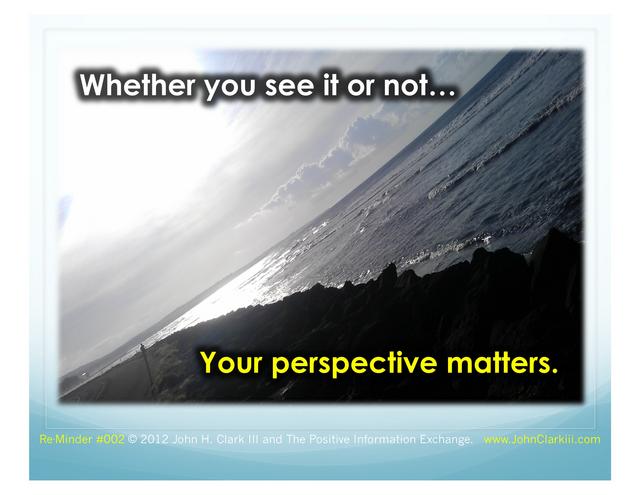
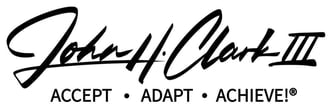
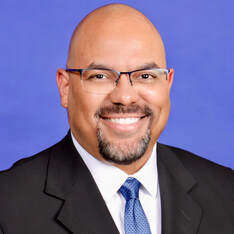

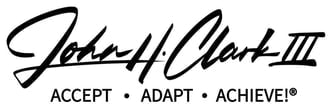
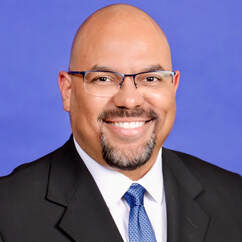

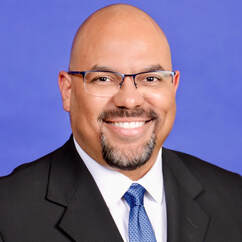
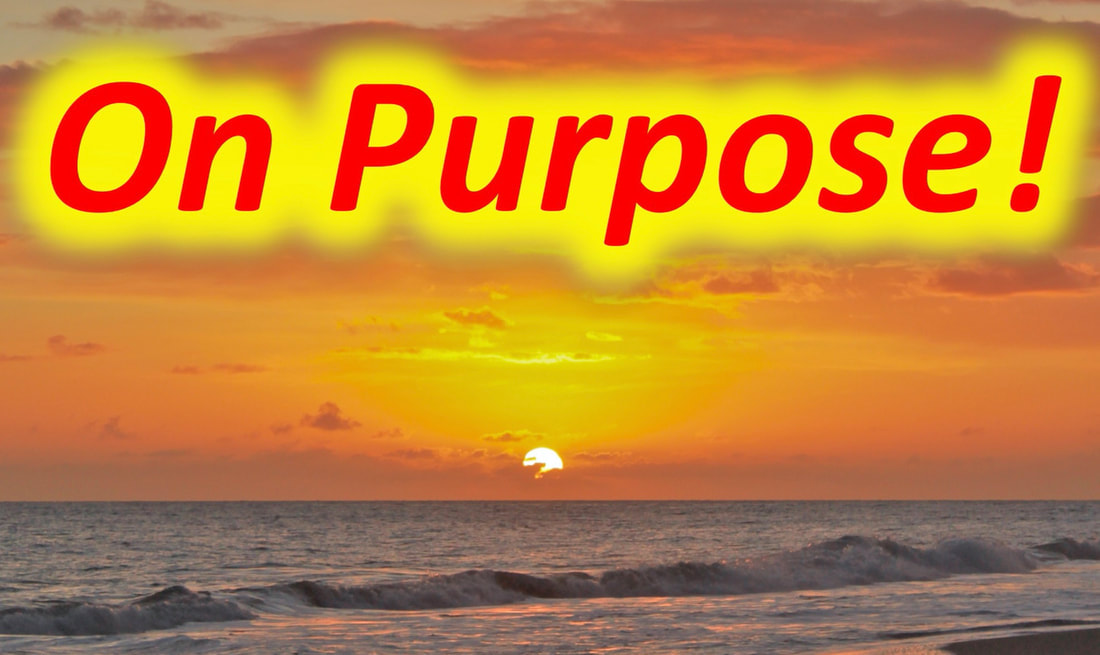
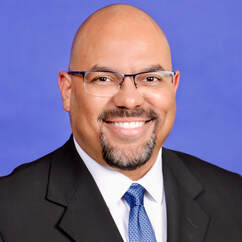
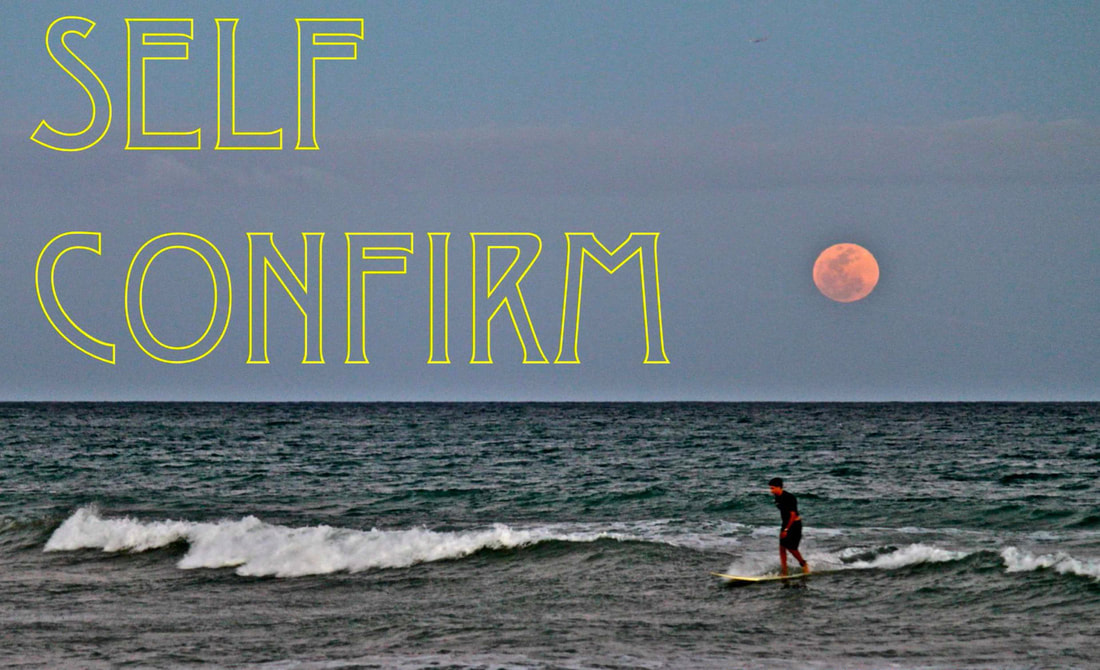
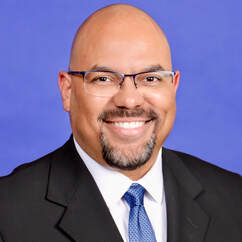
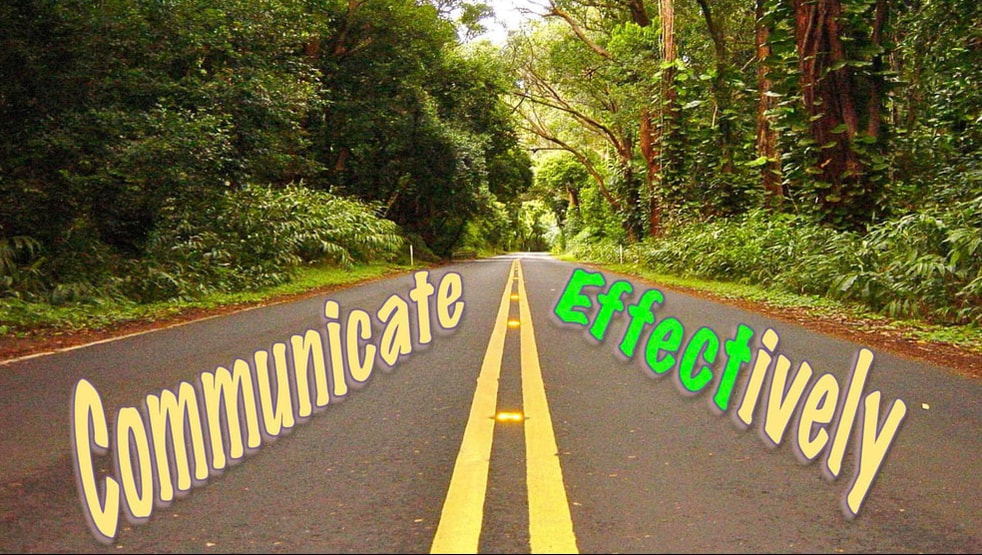
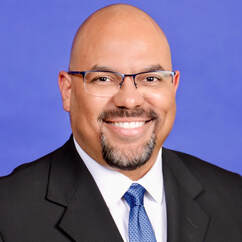

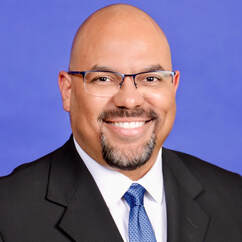

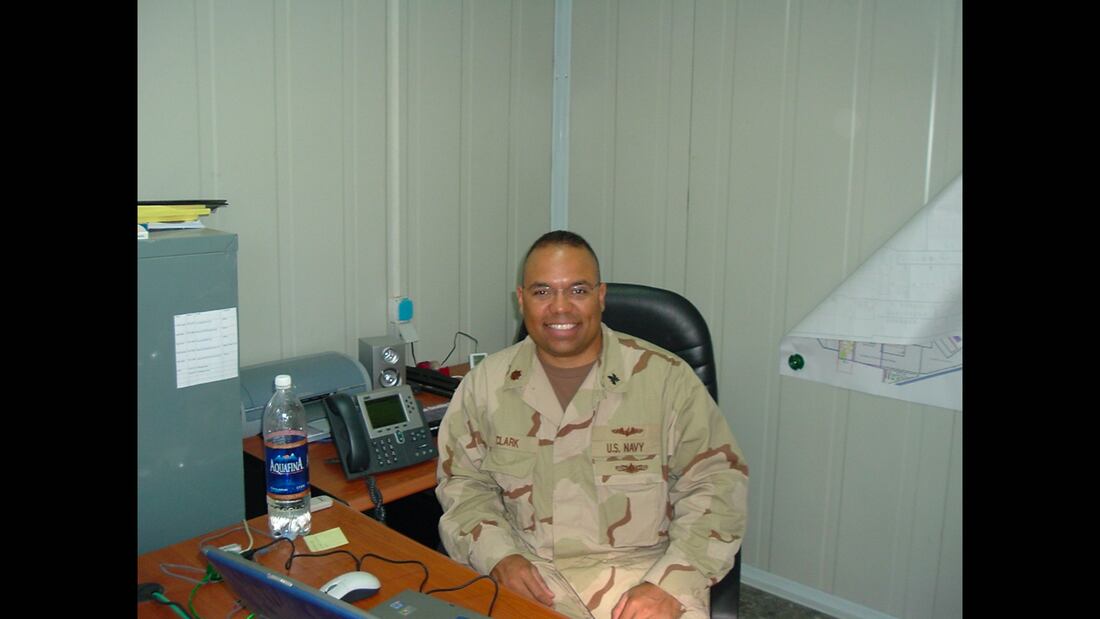
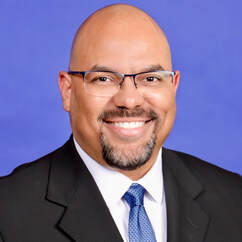
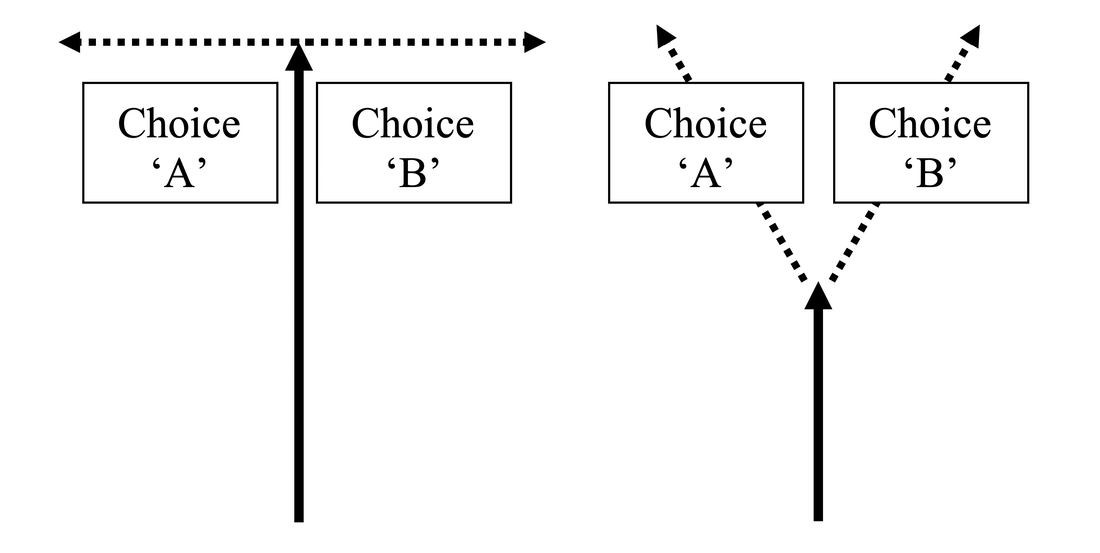
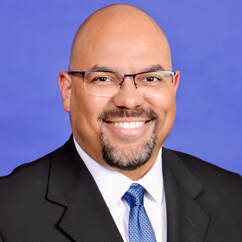

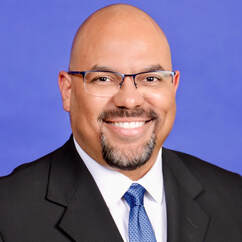


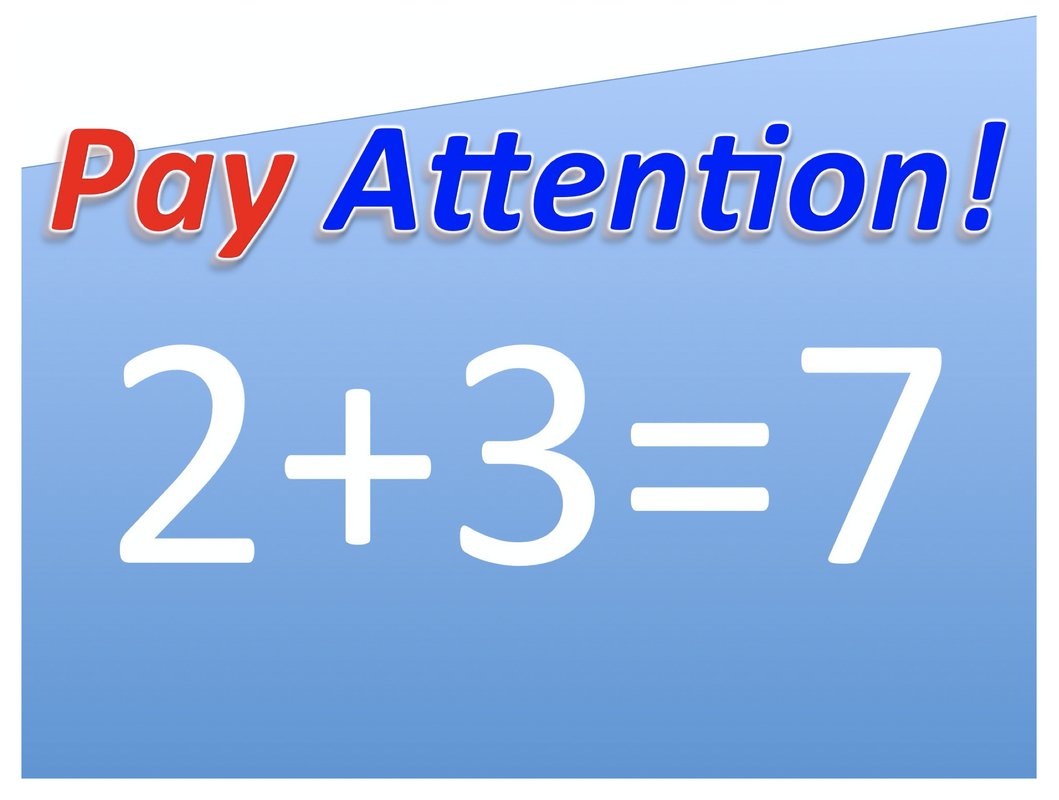

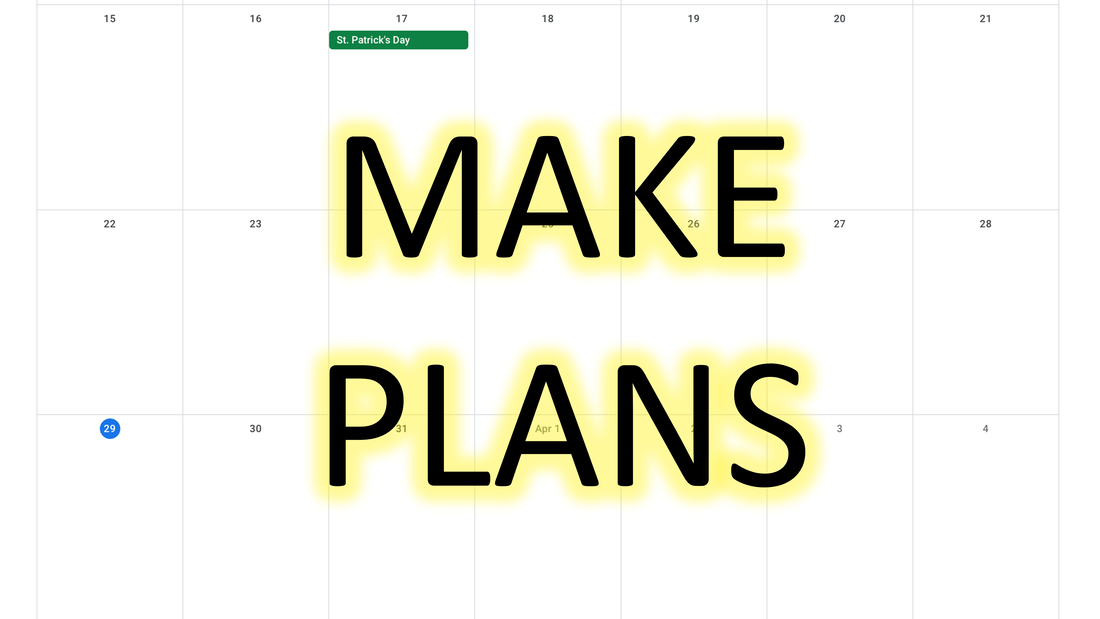


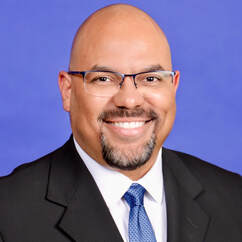

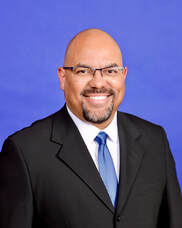
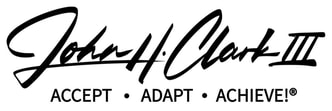

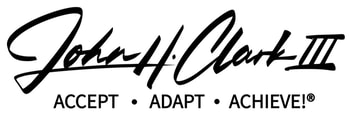




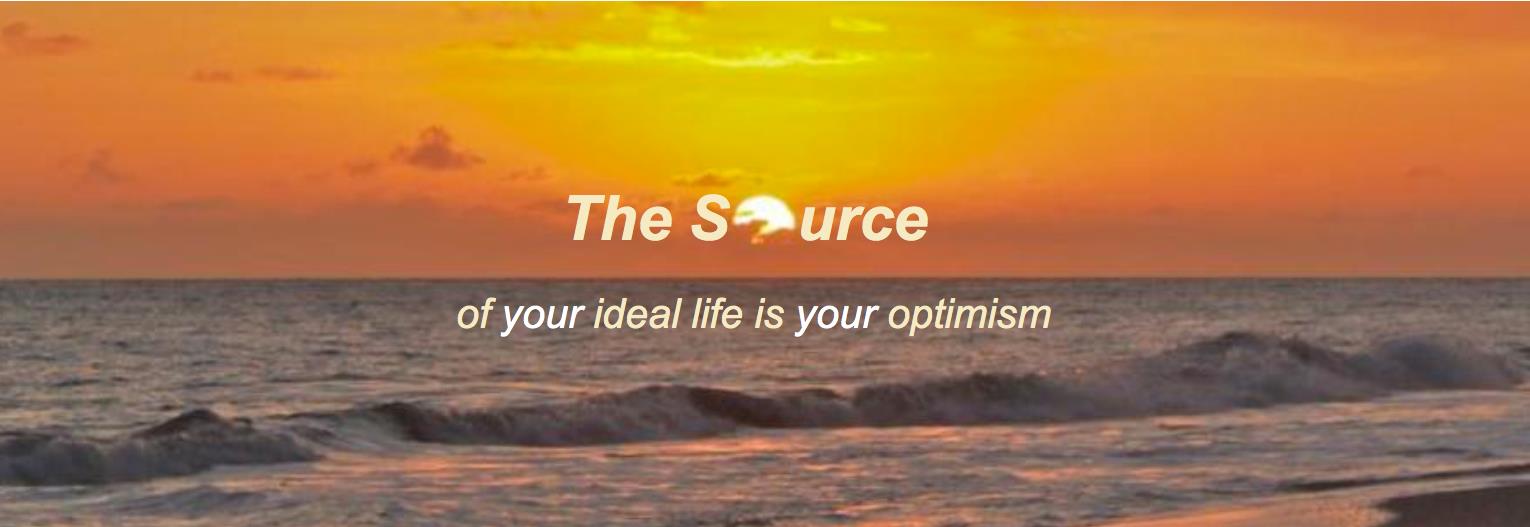
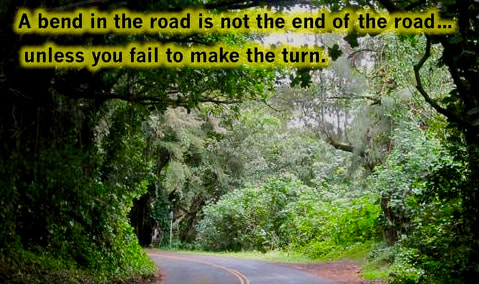
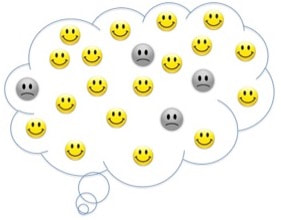




 RSS Feed
RSS Feed
